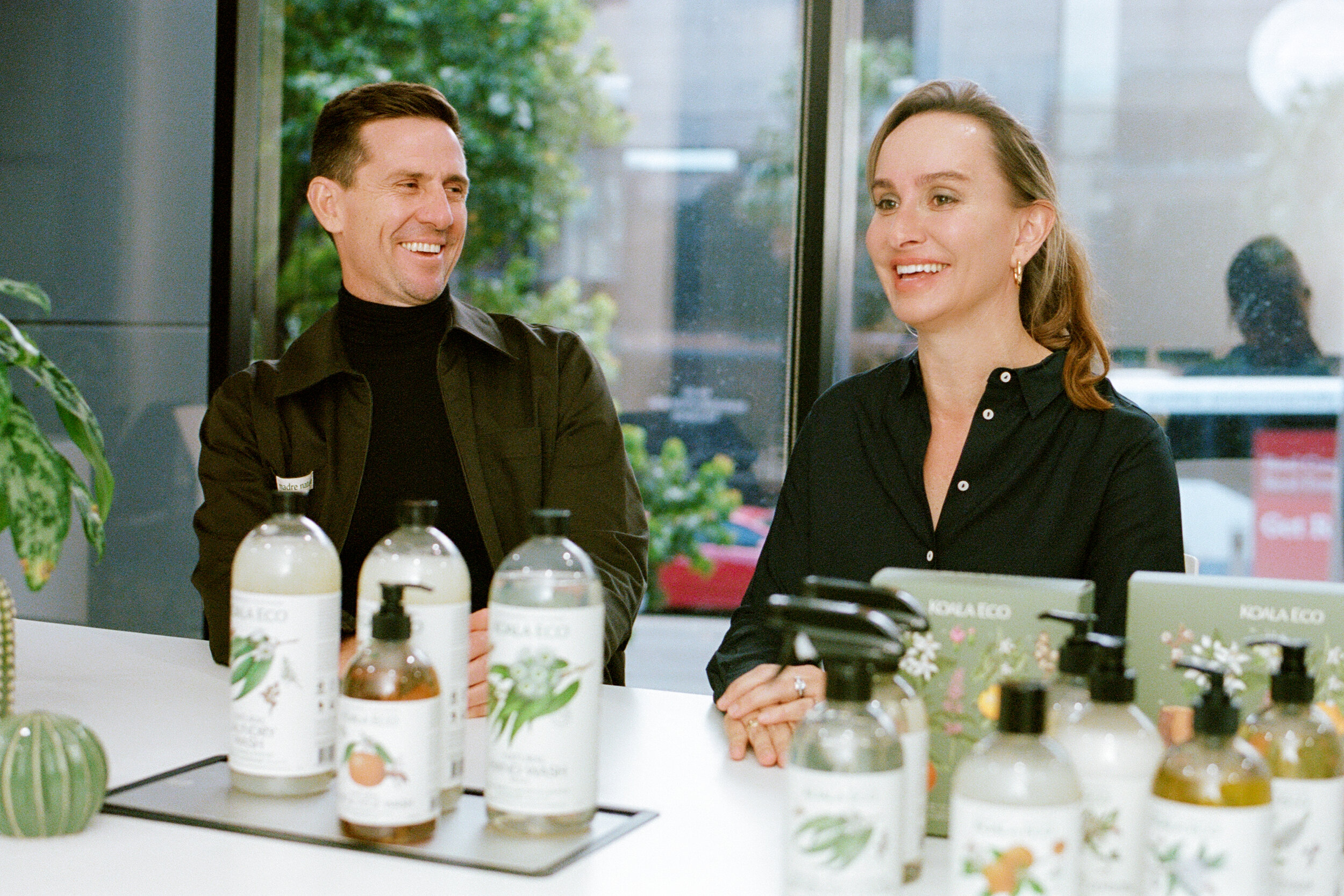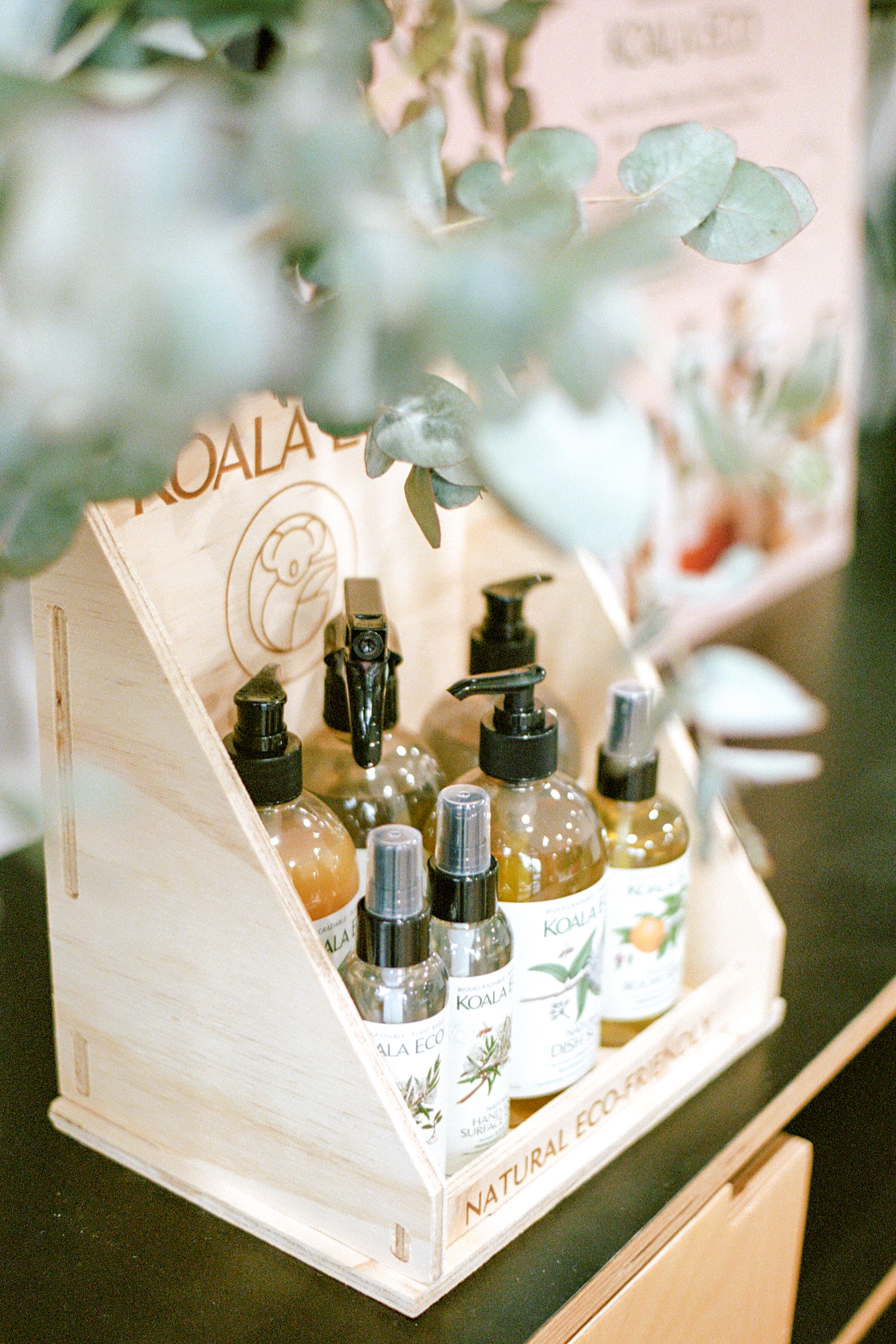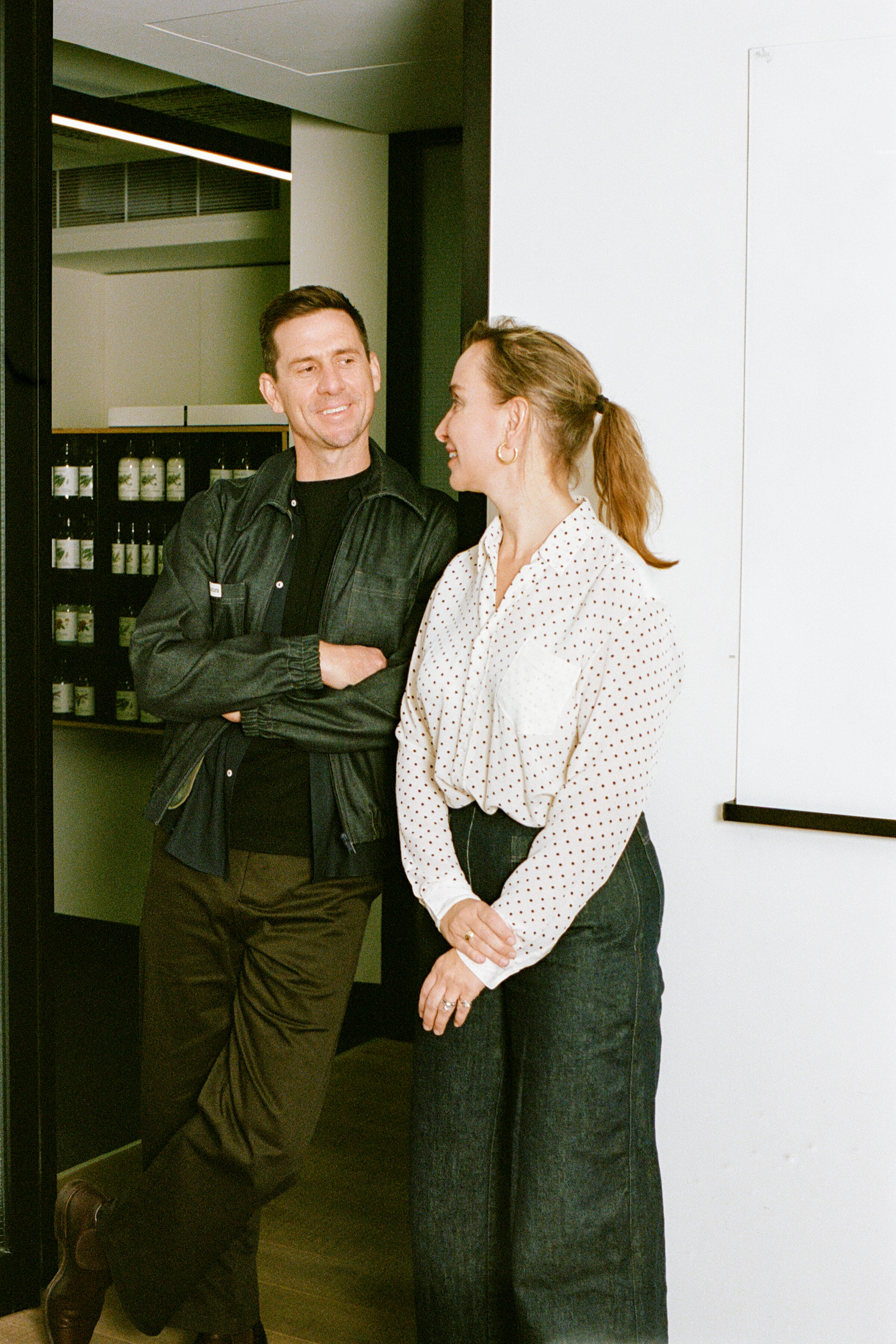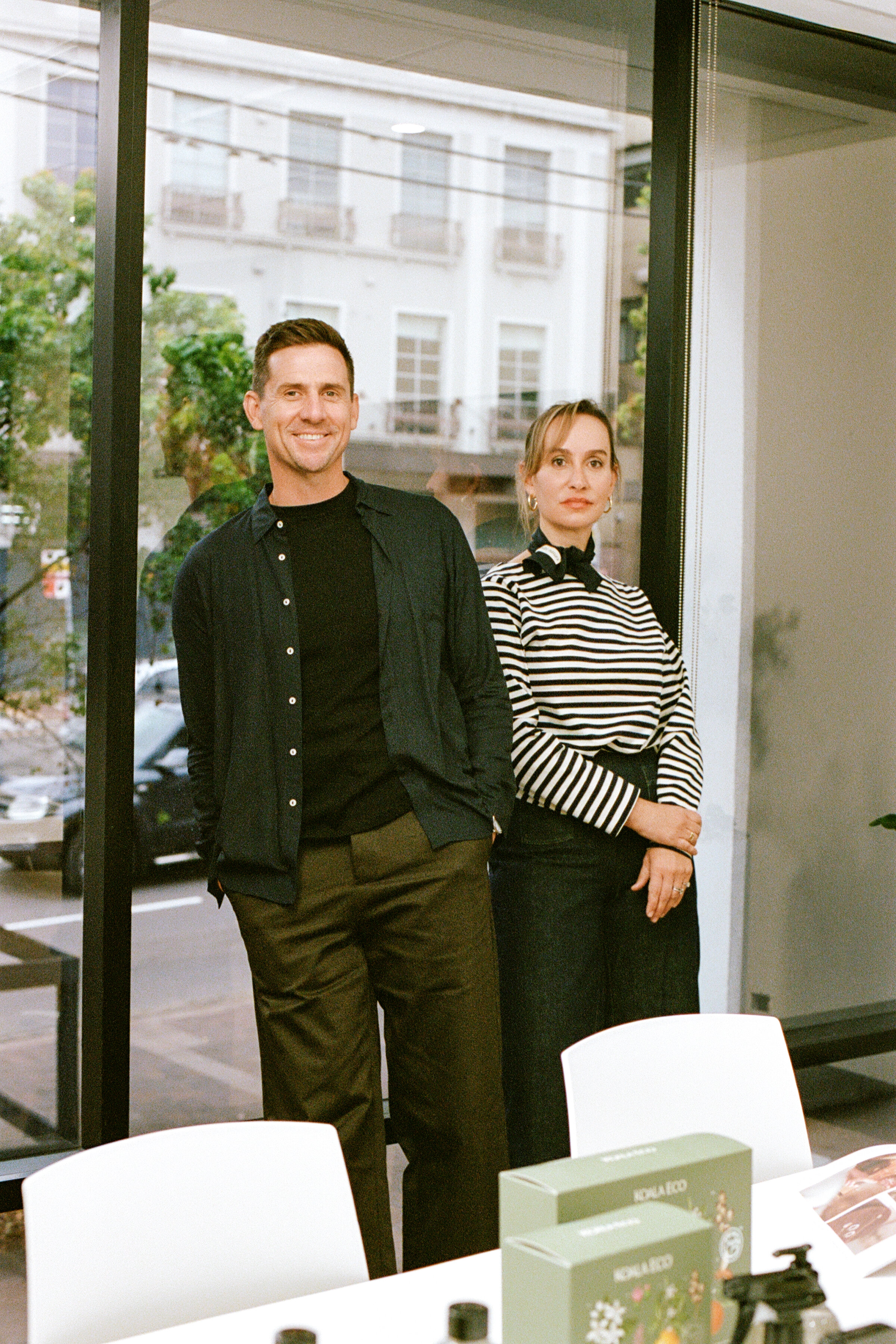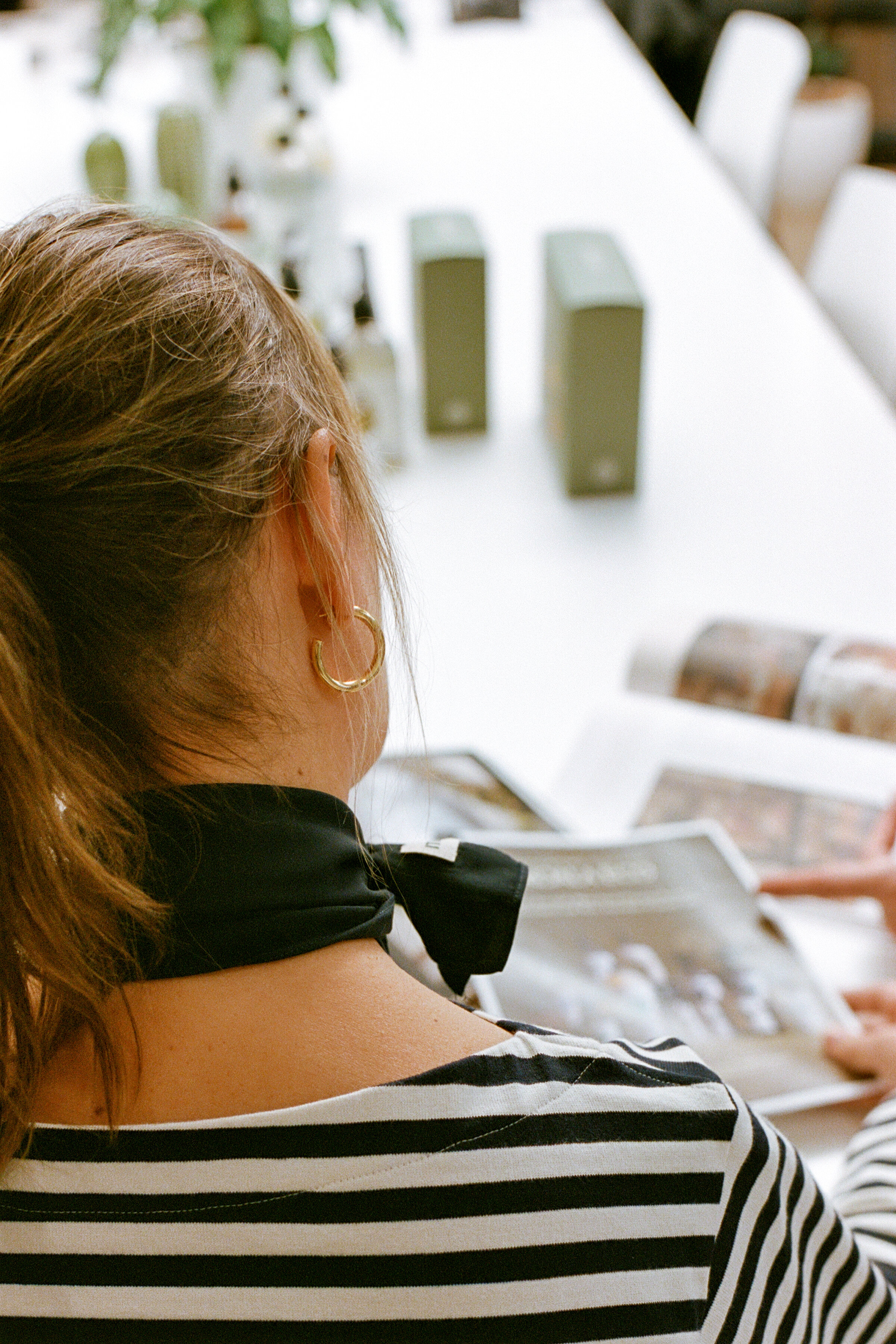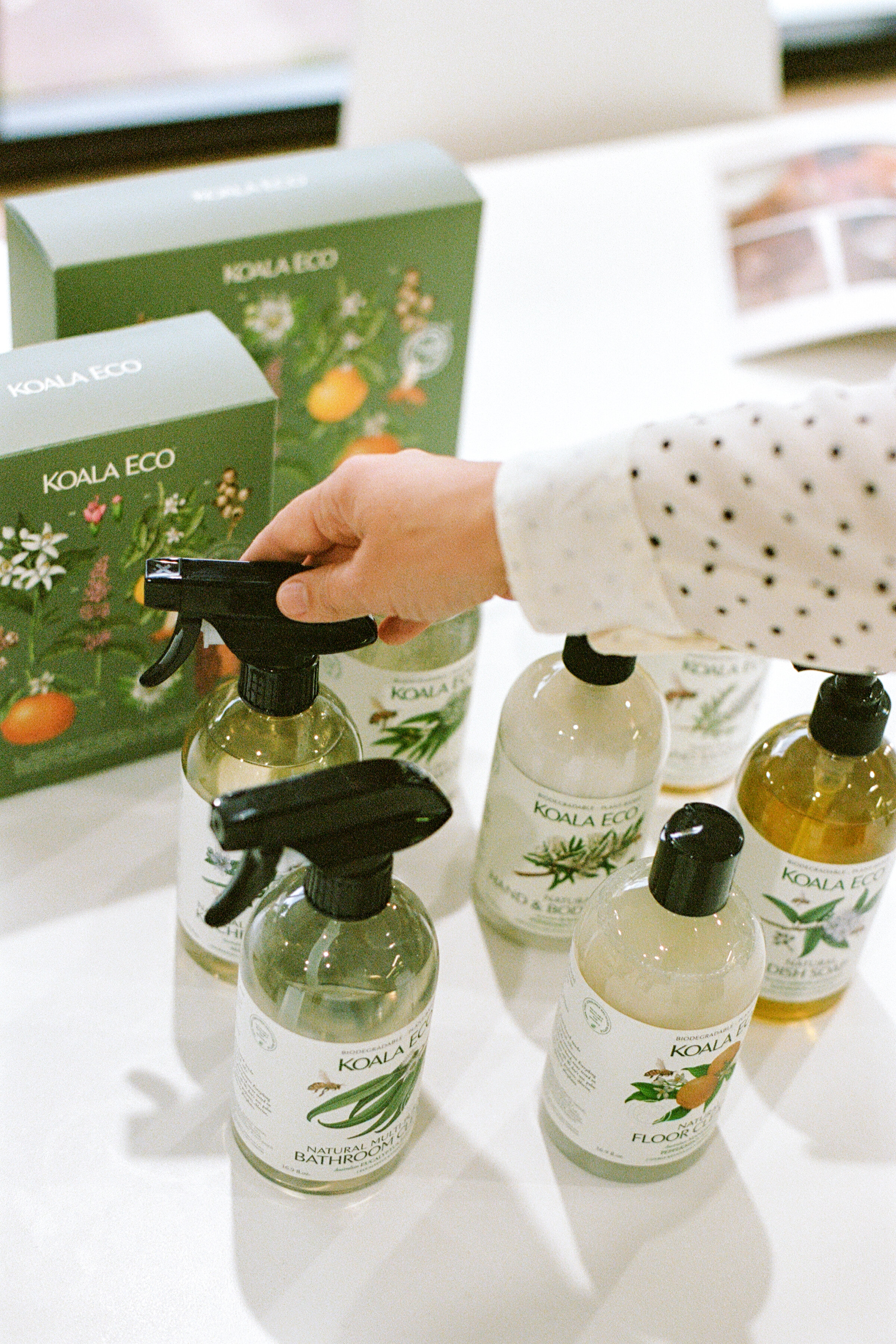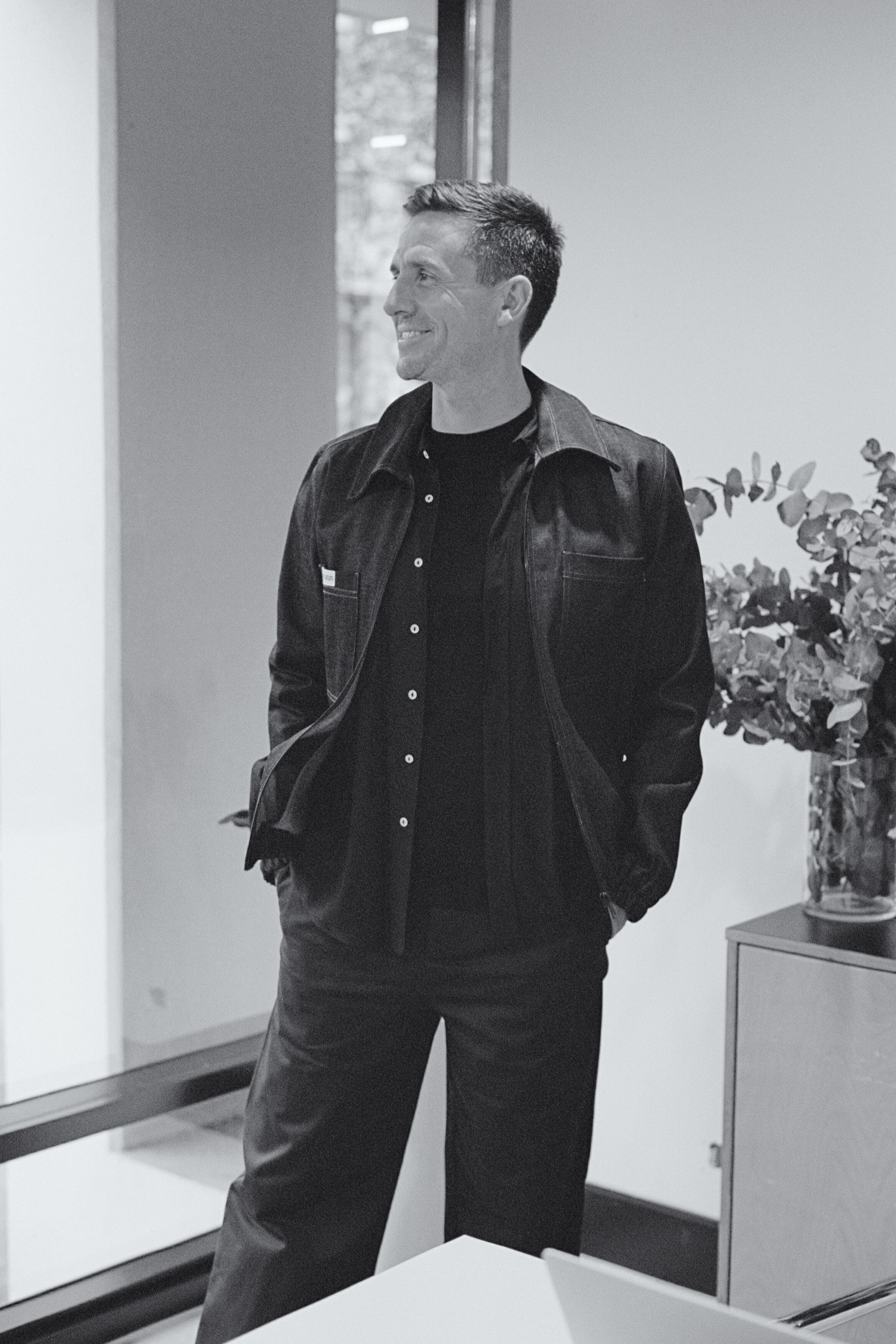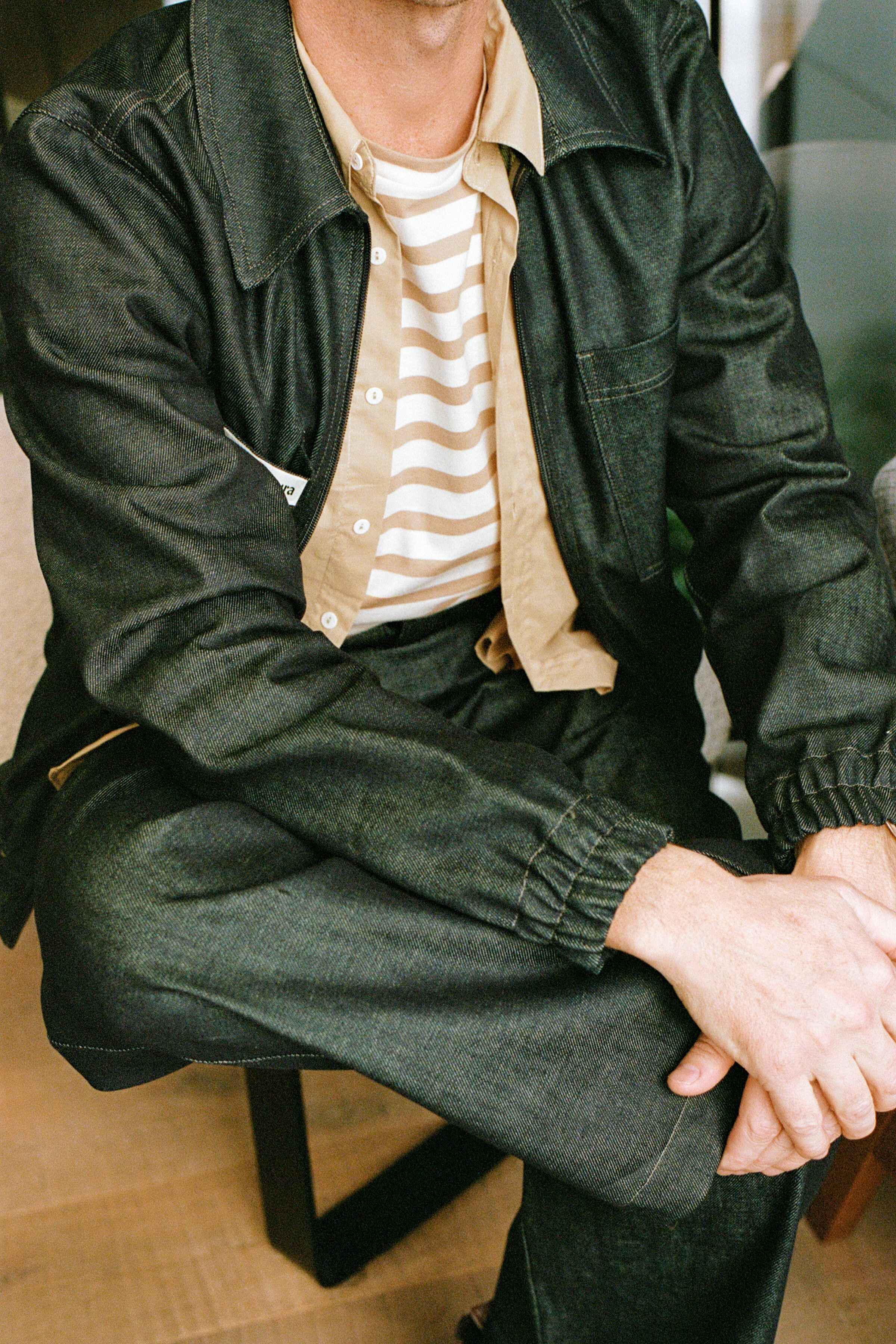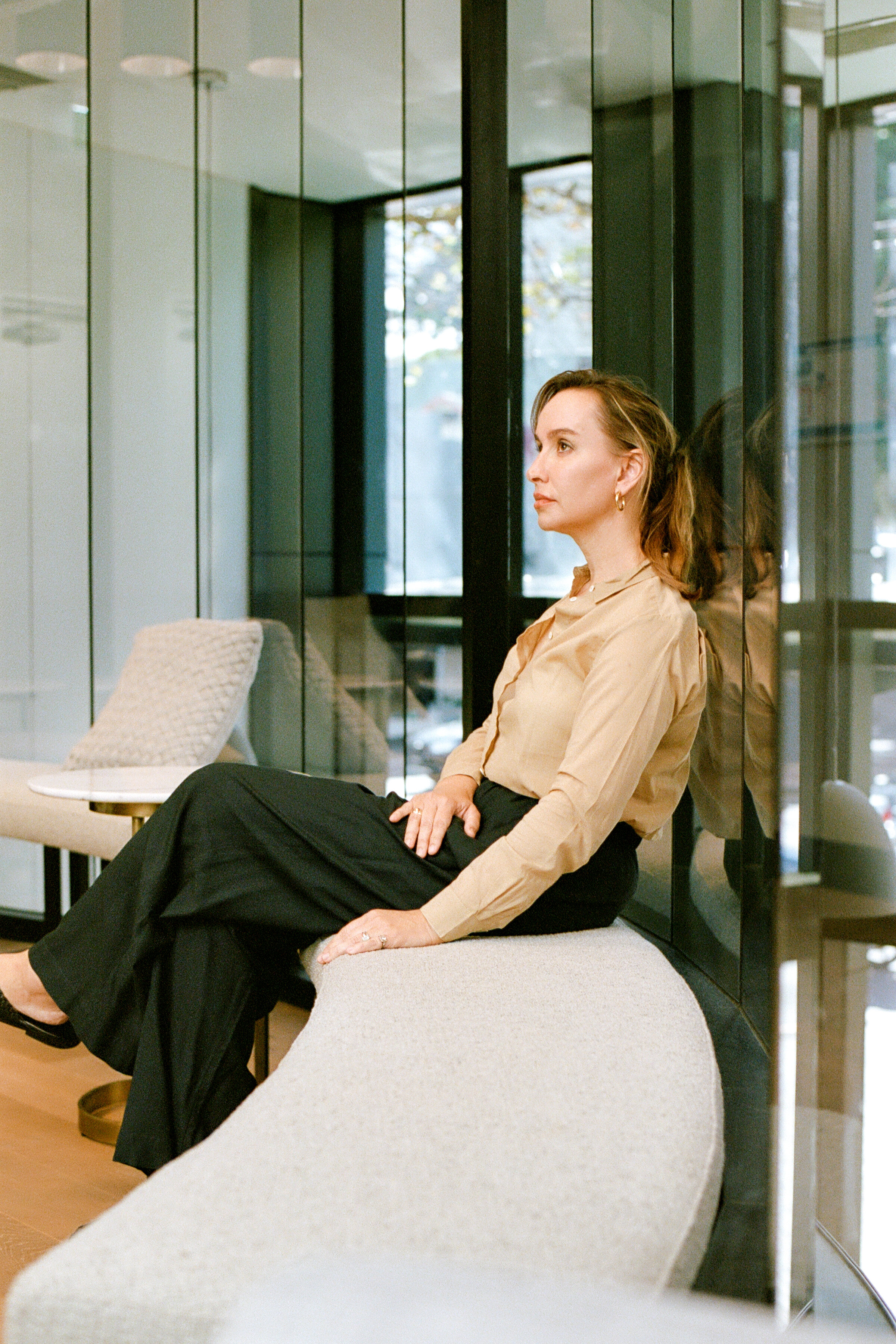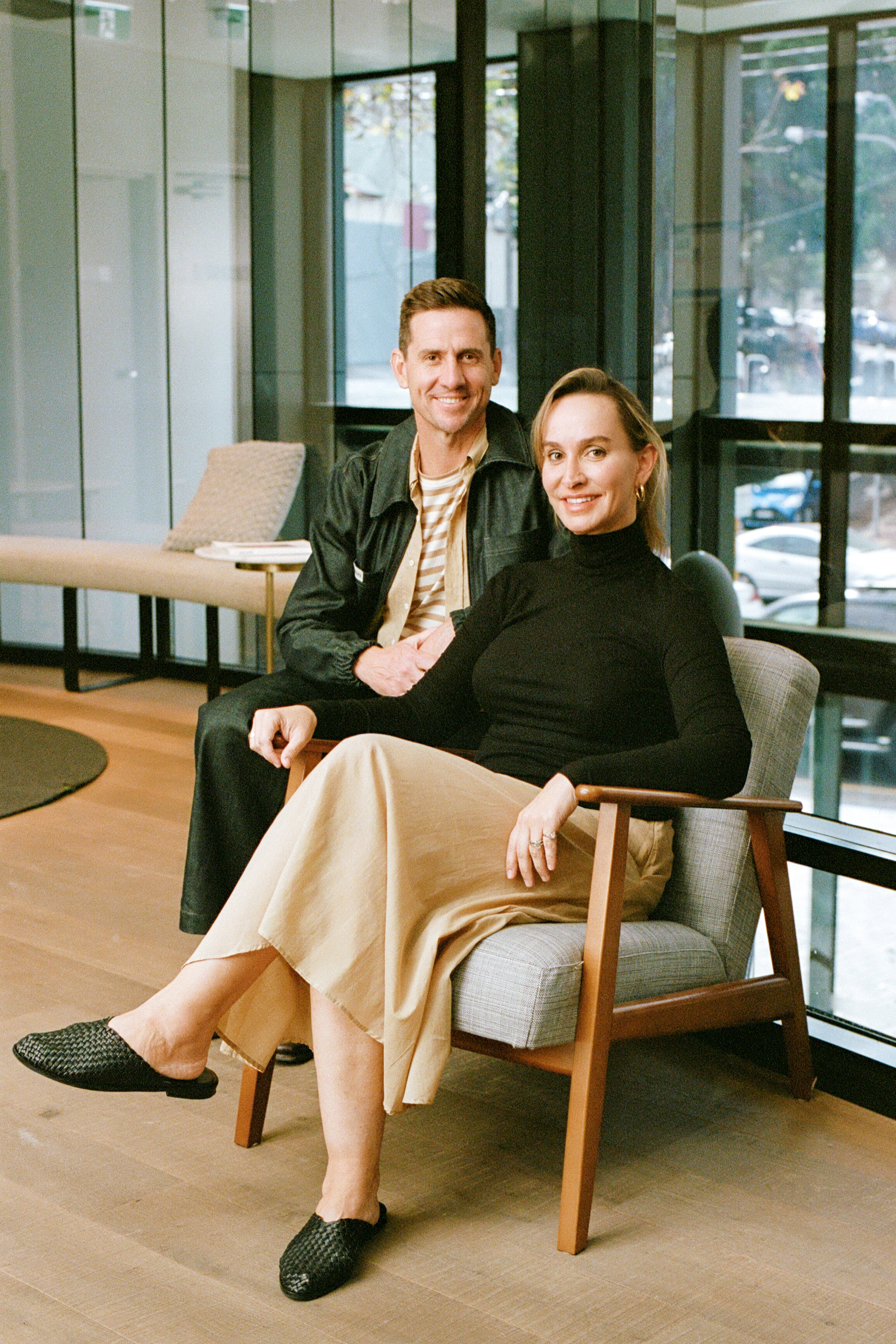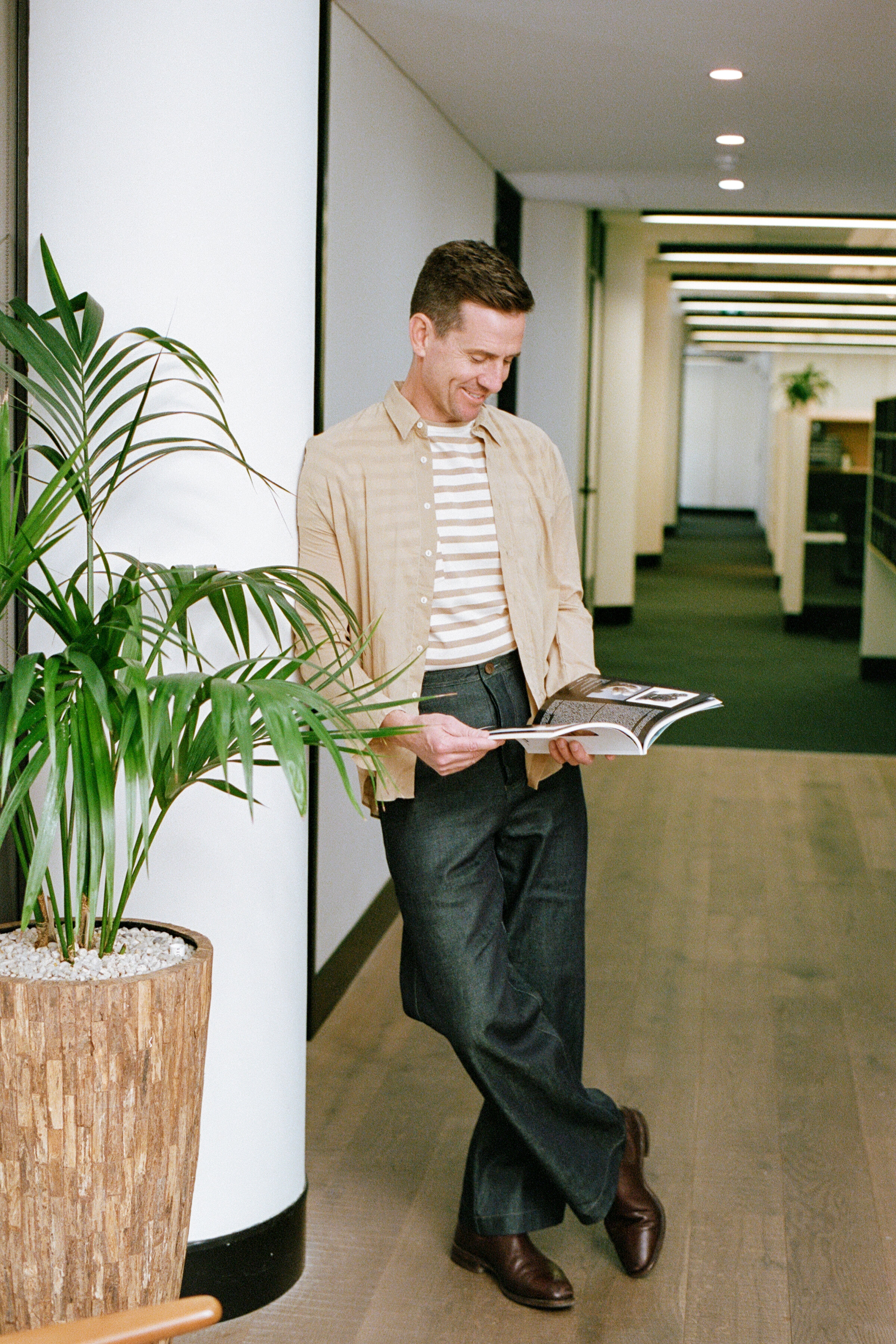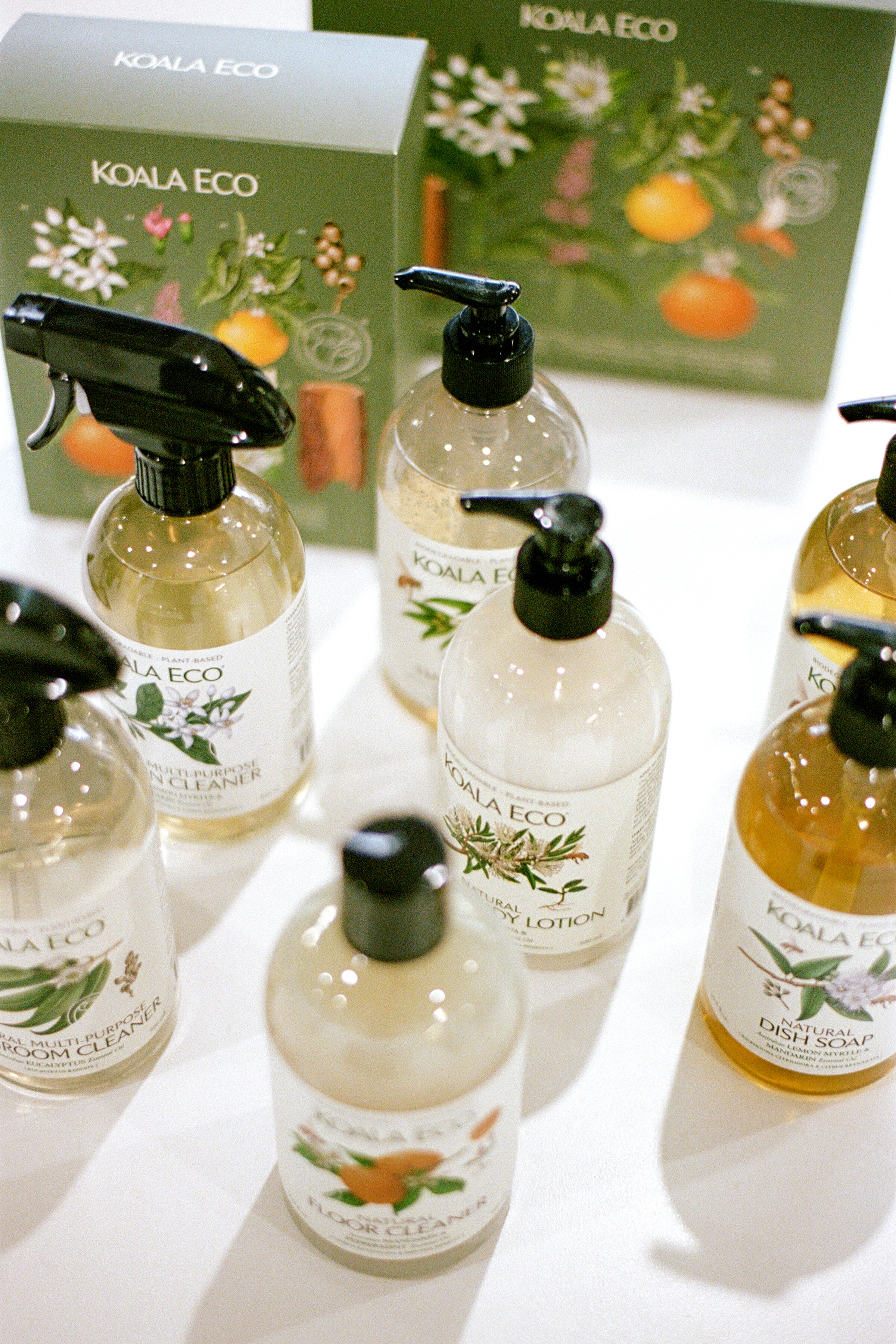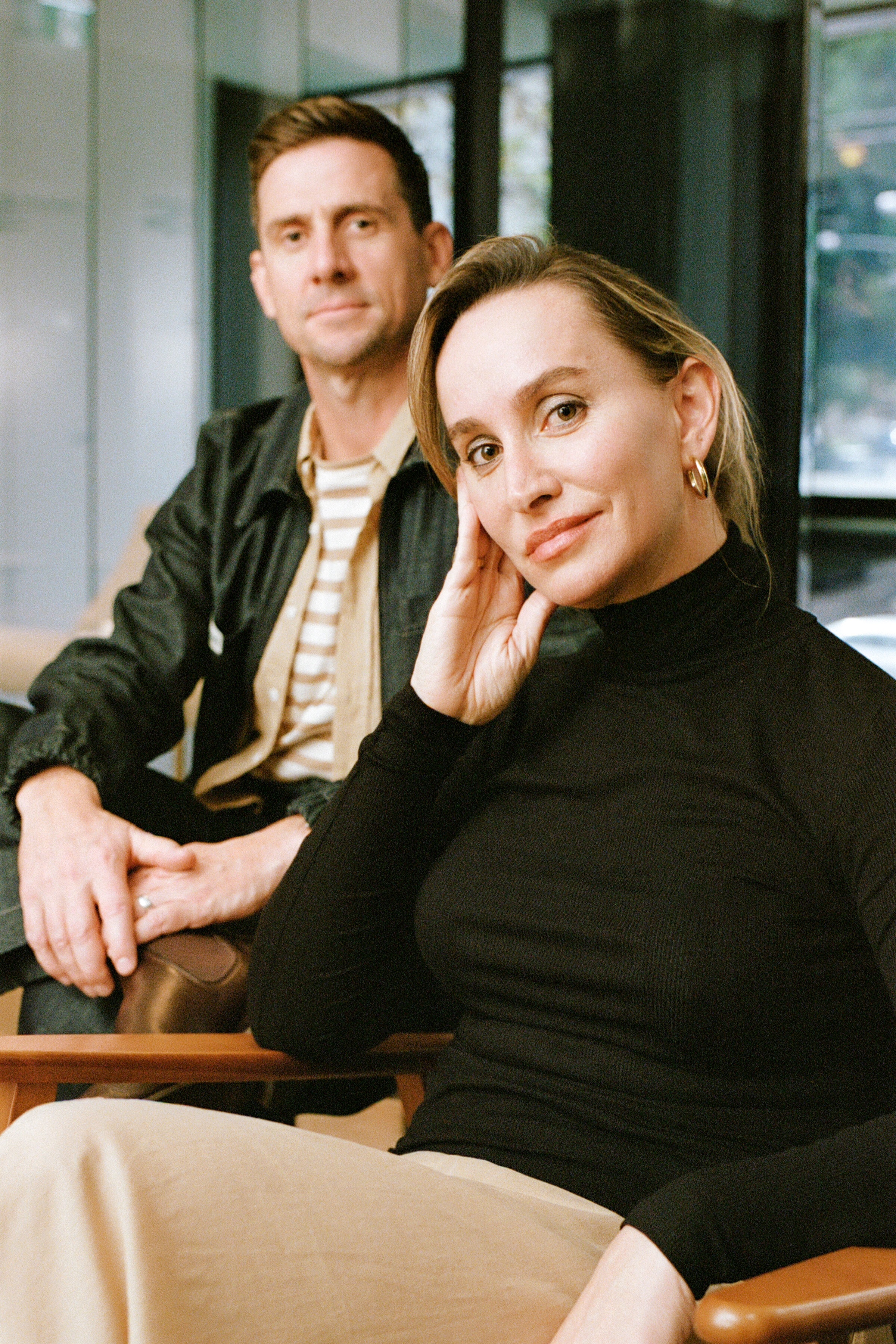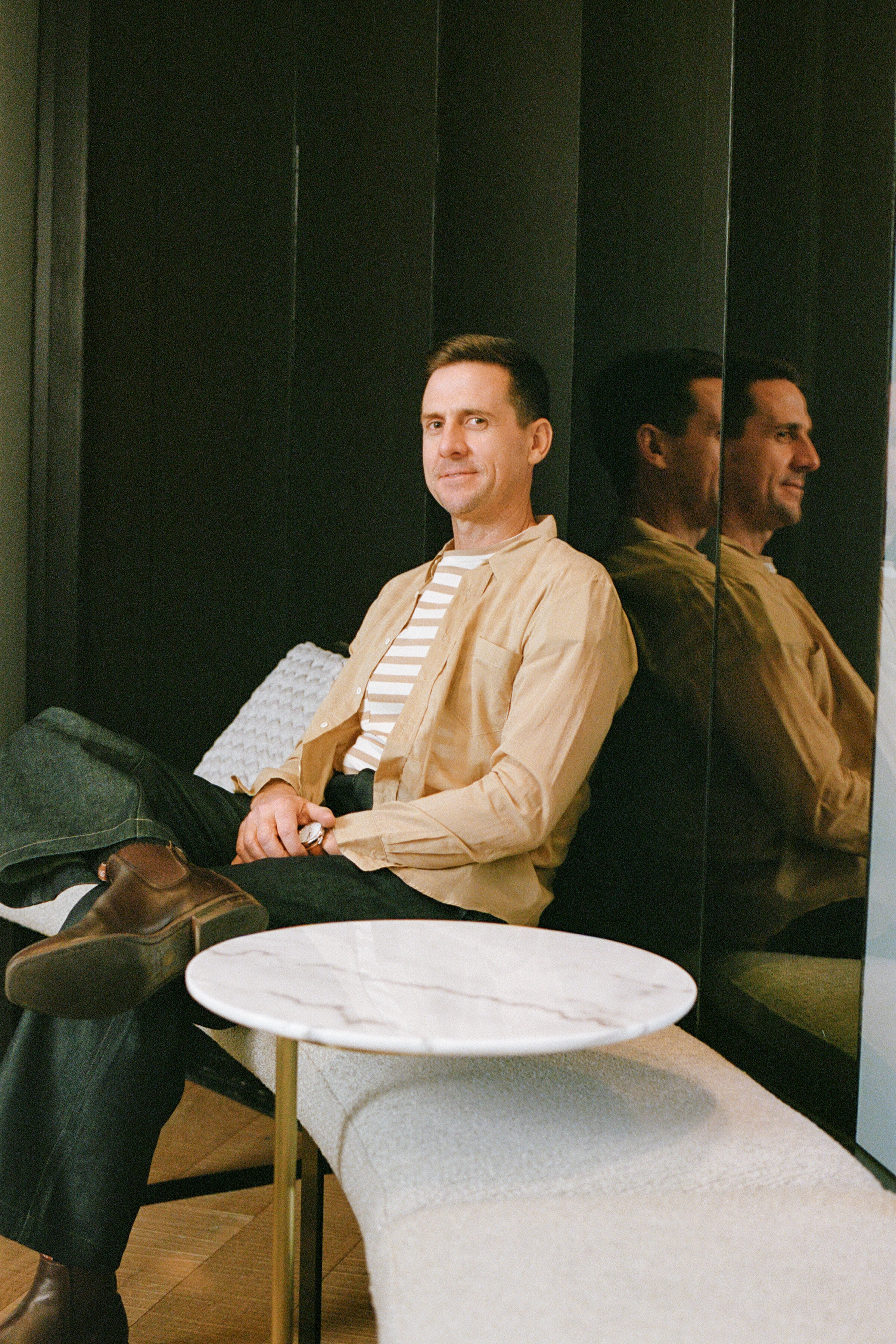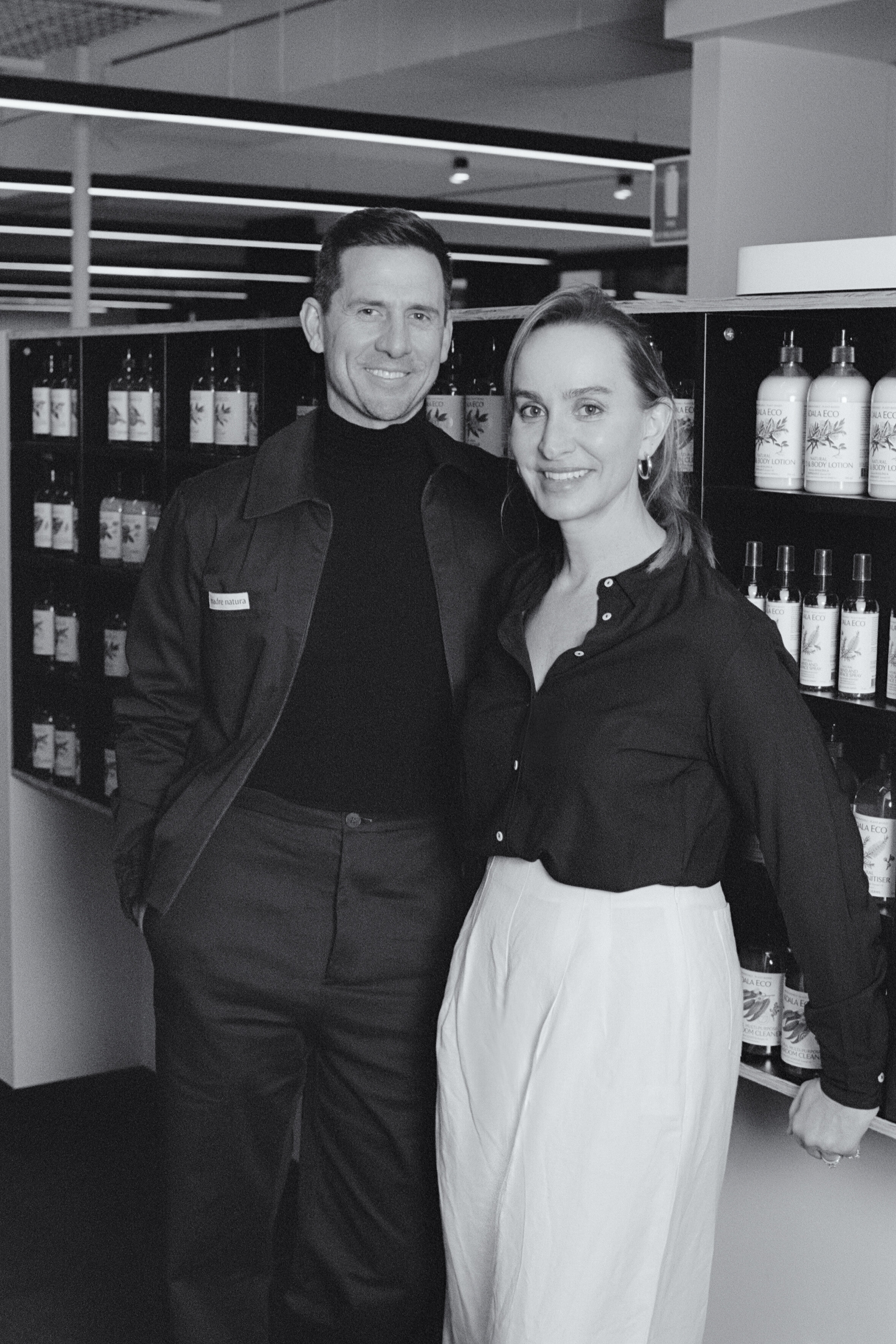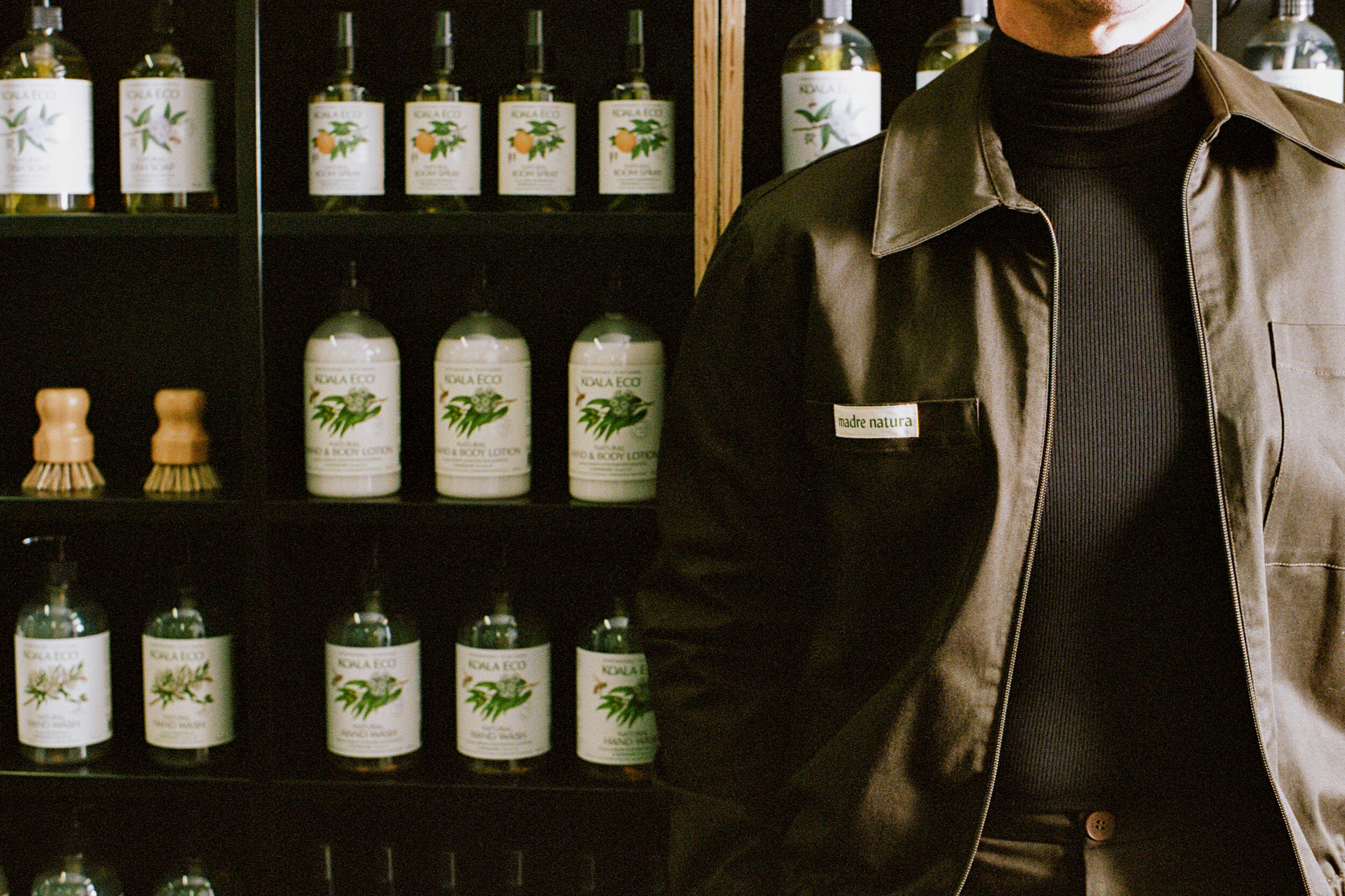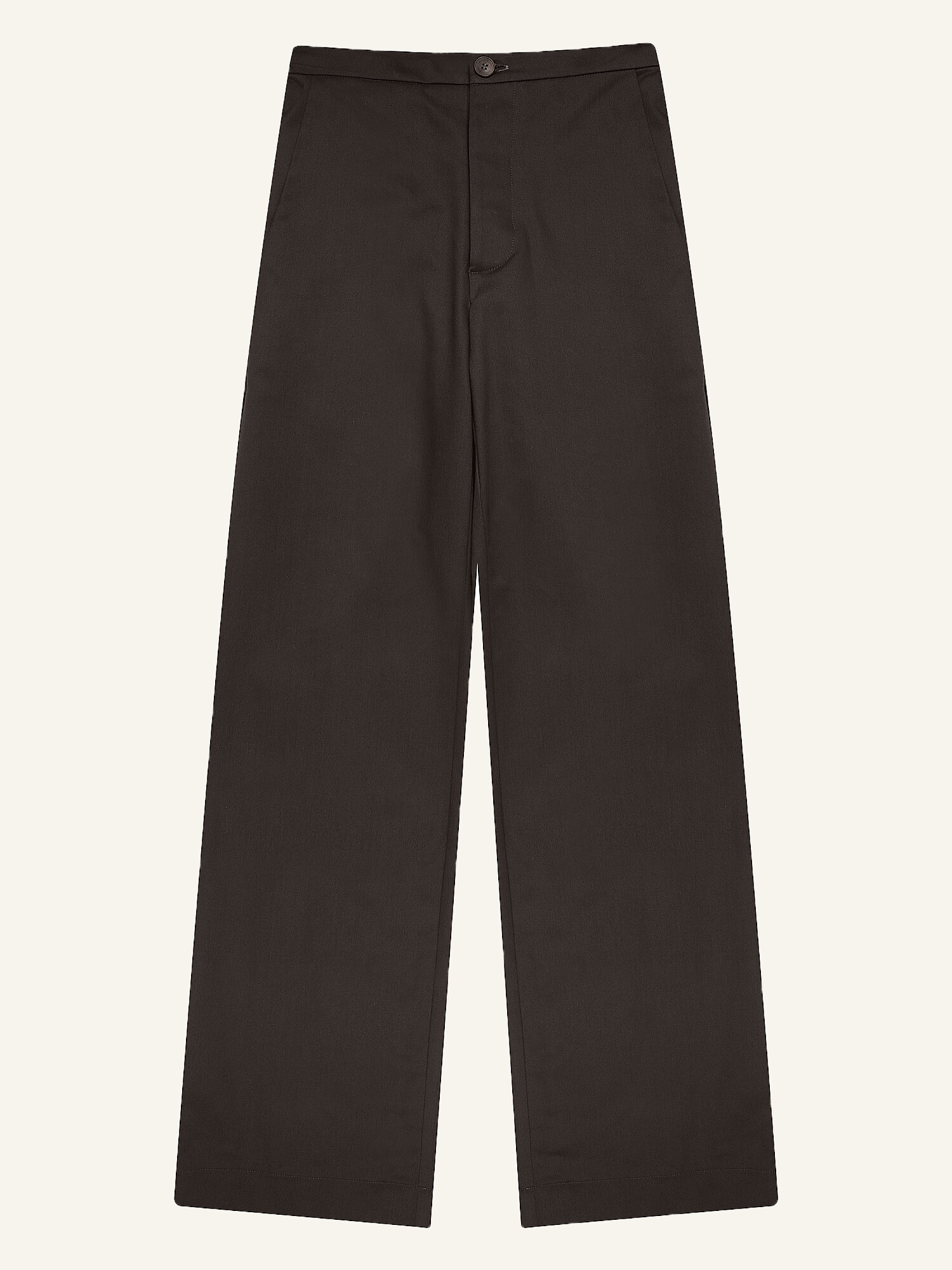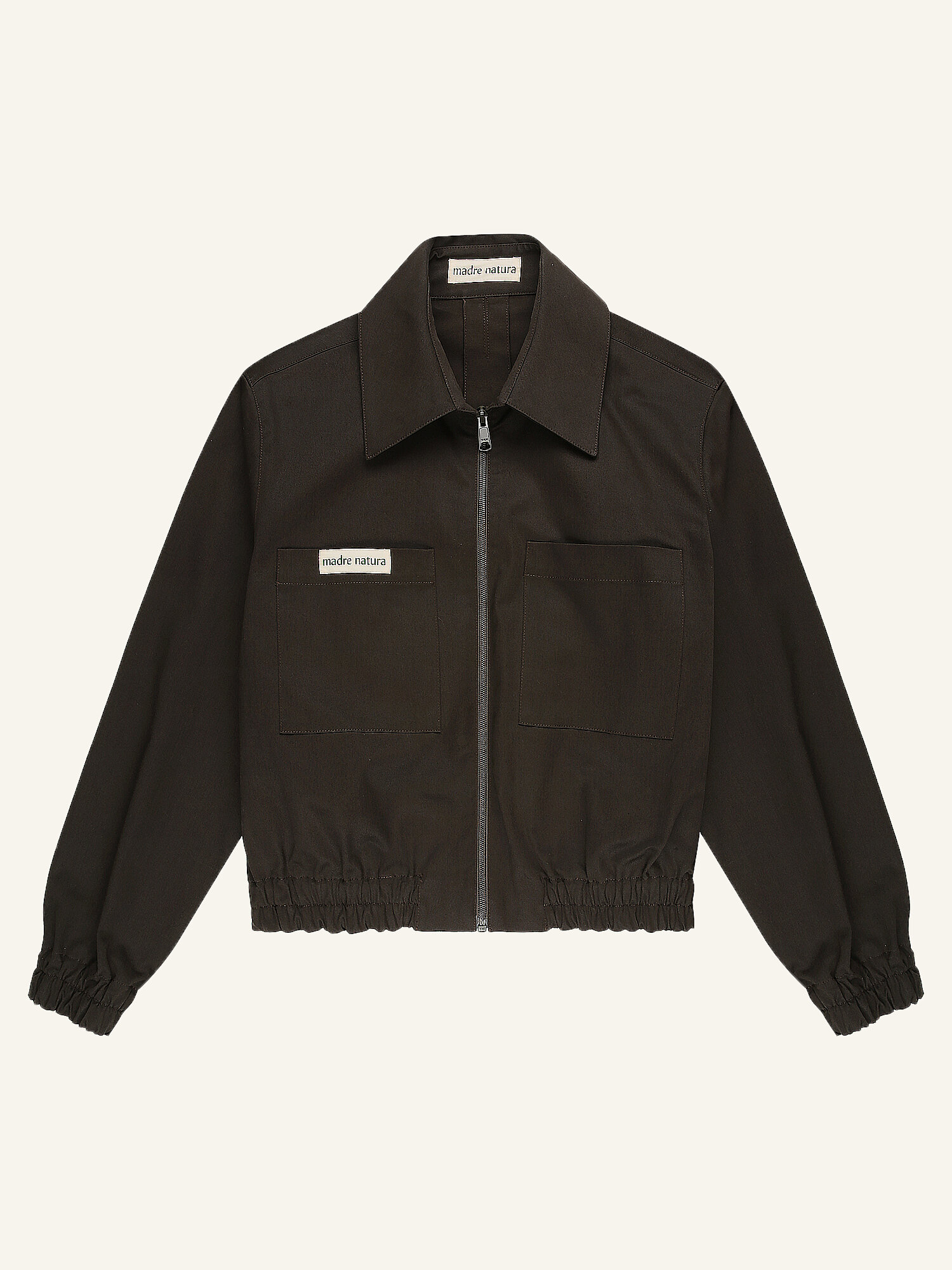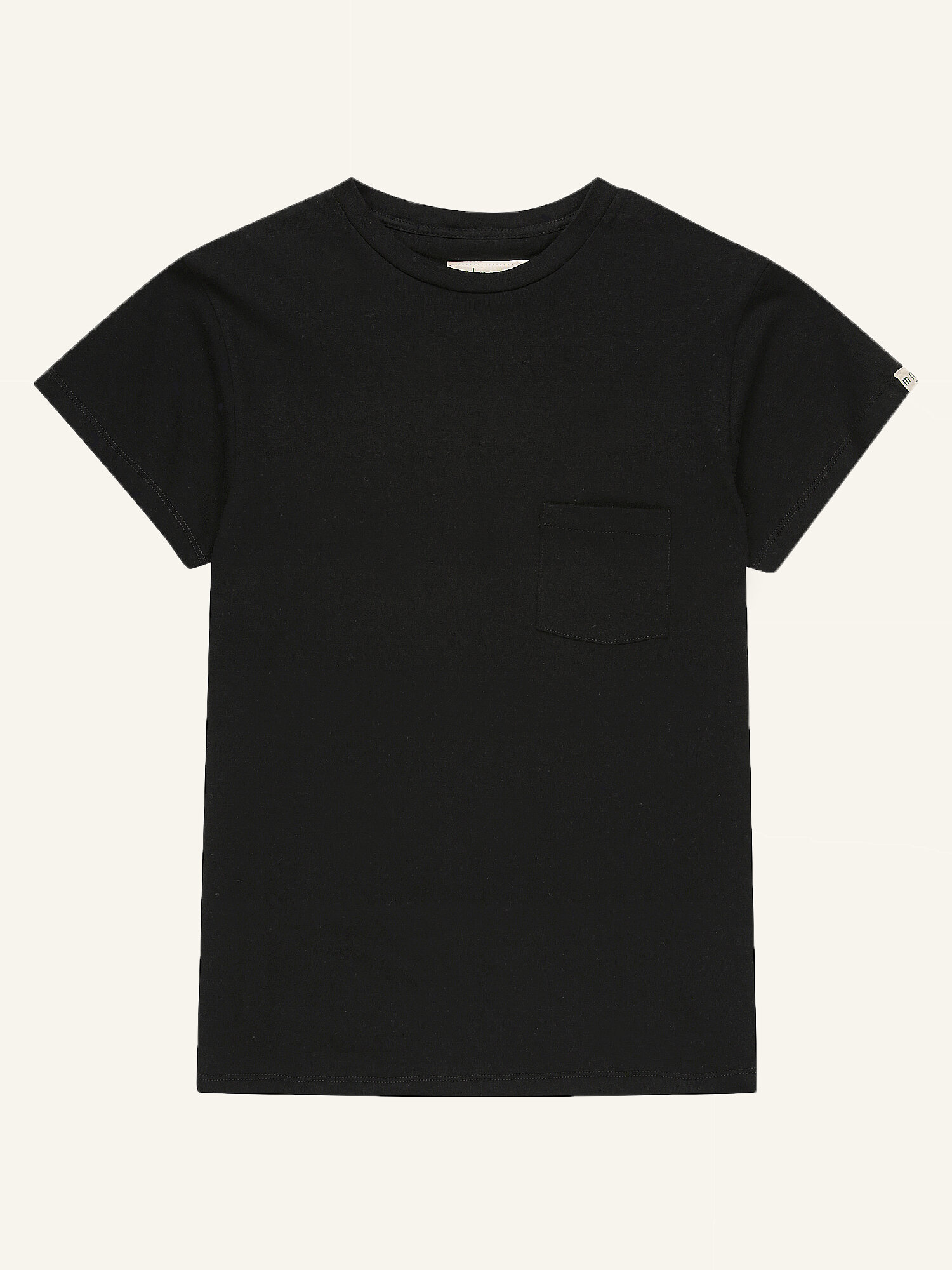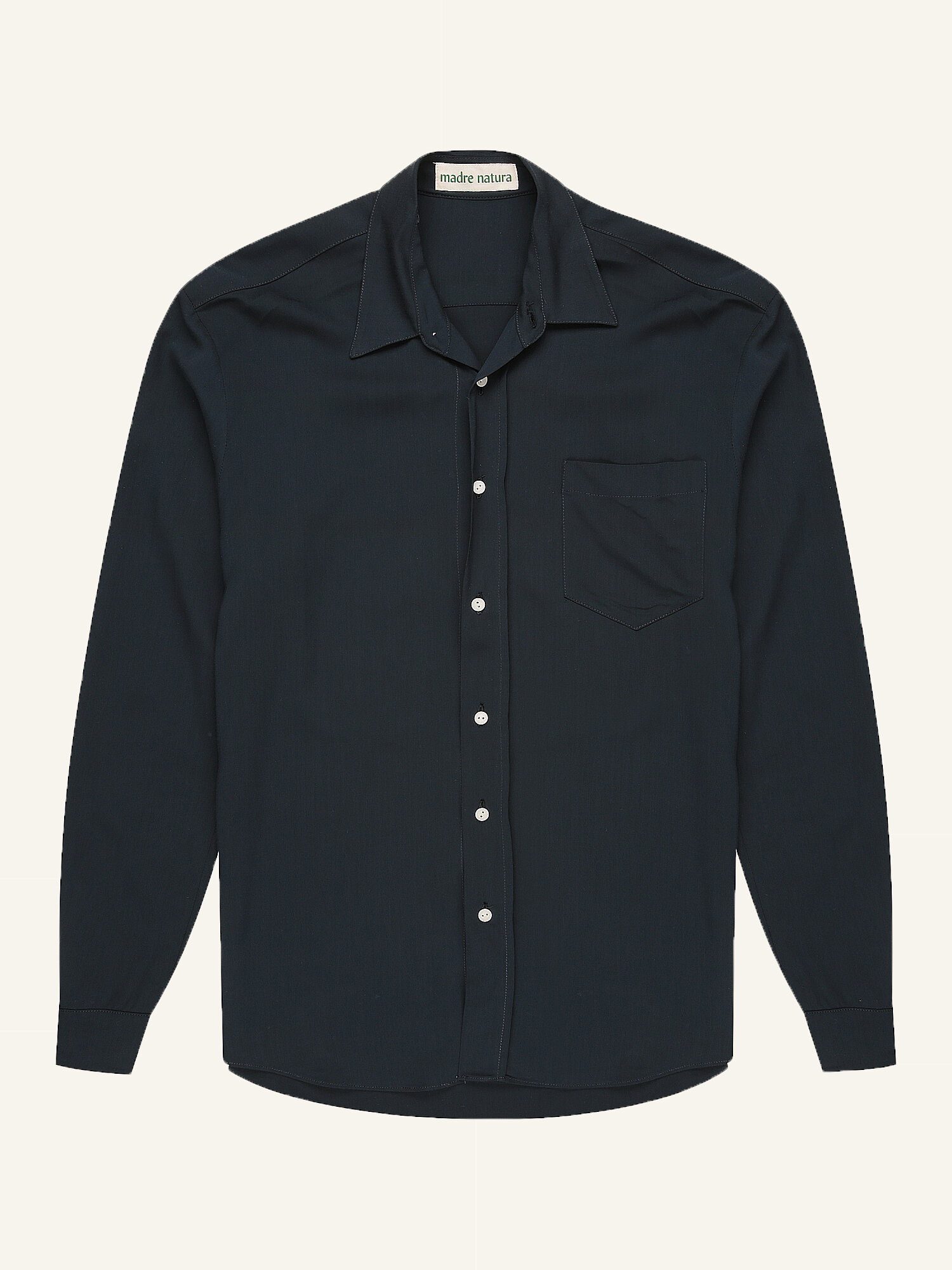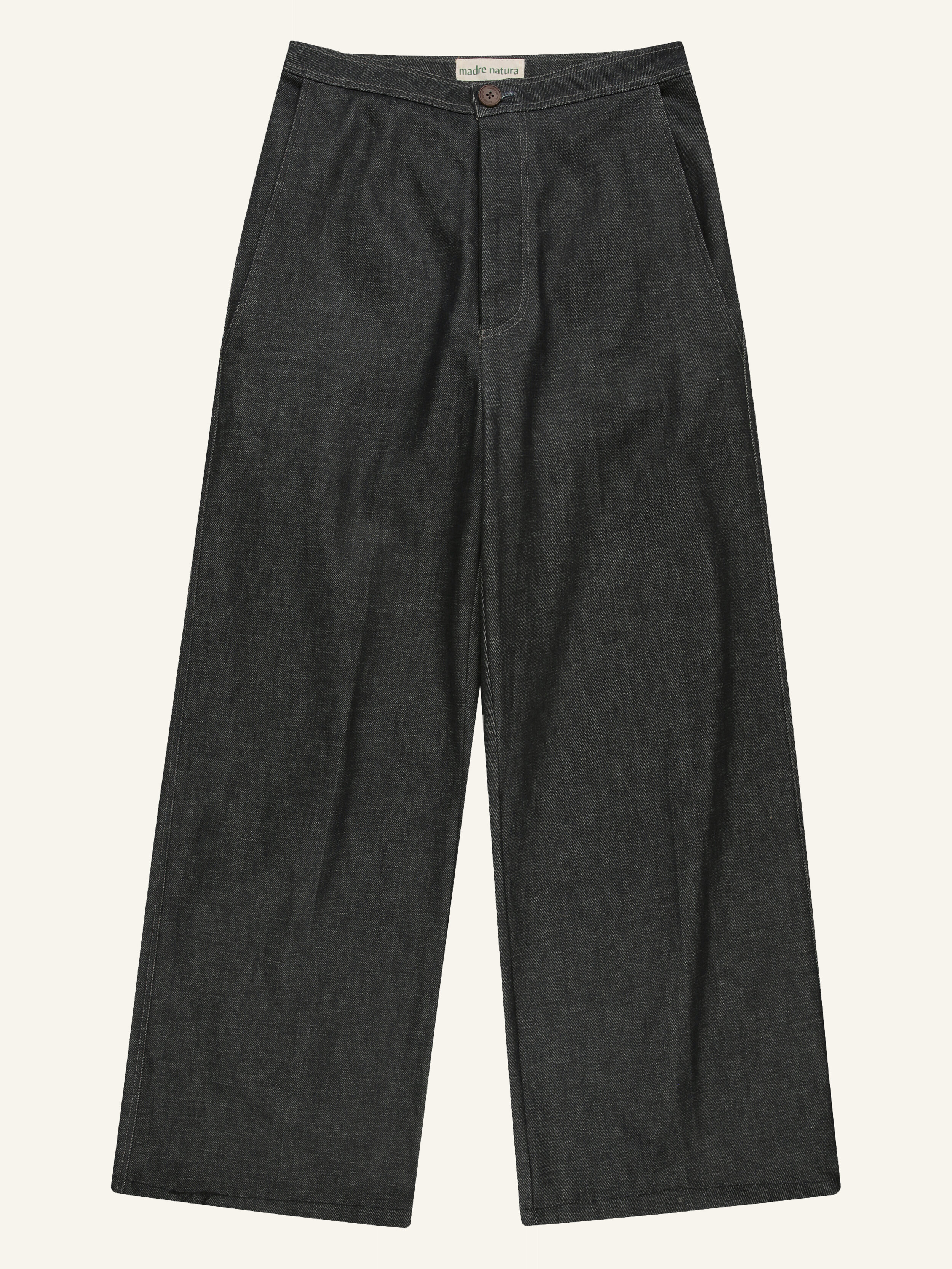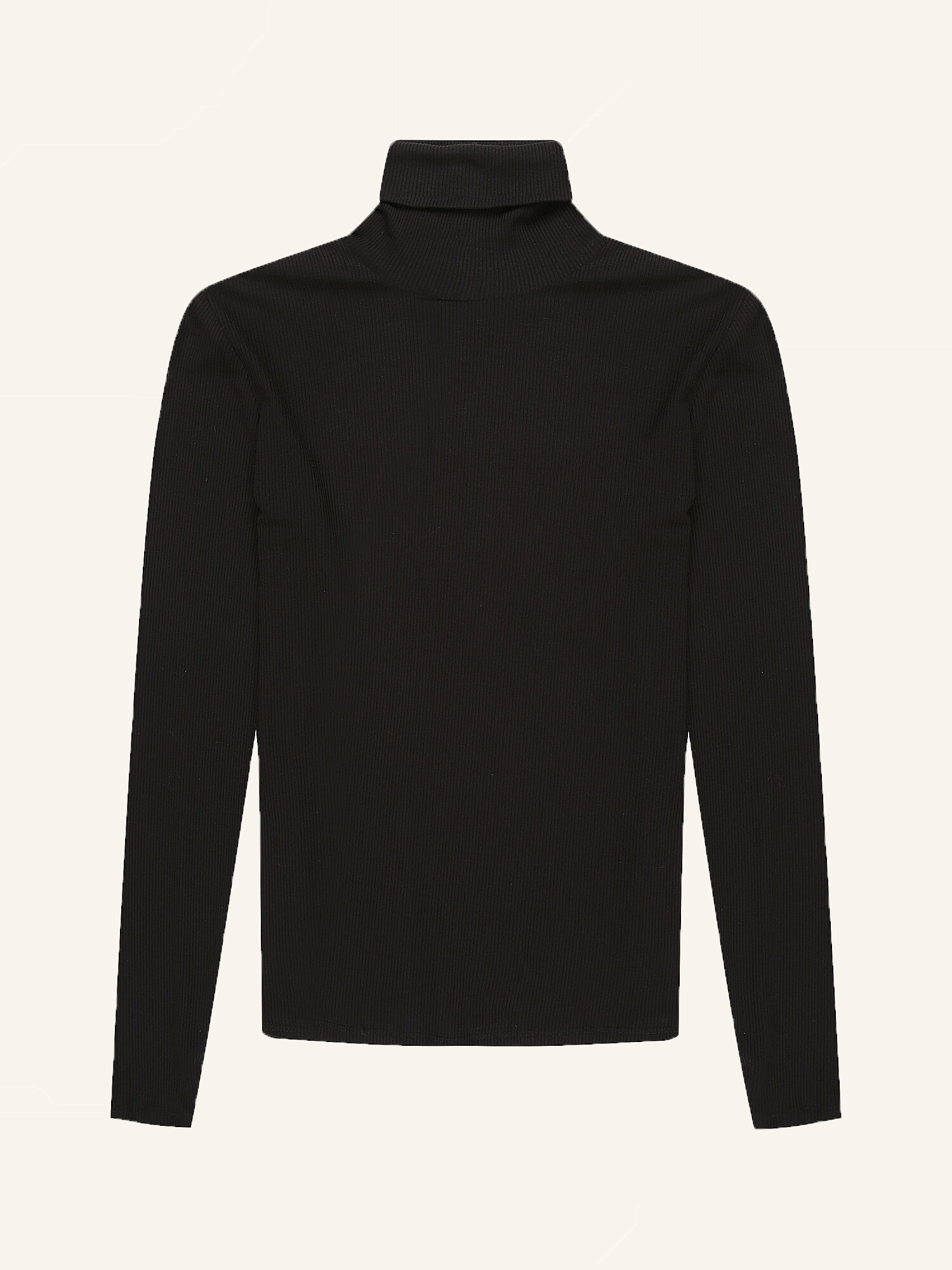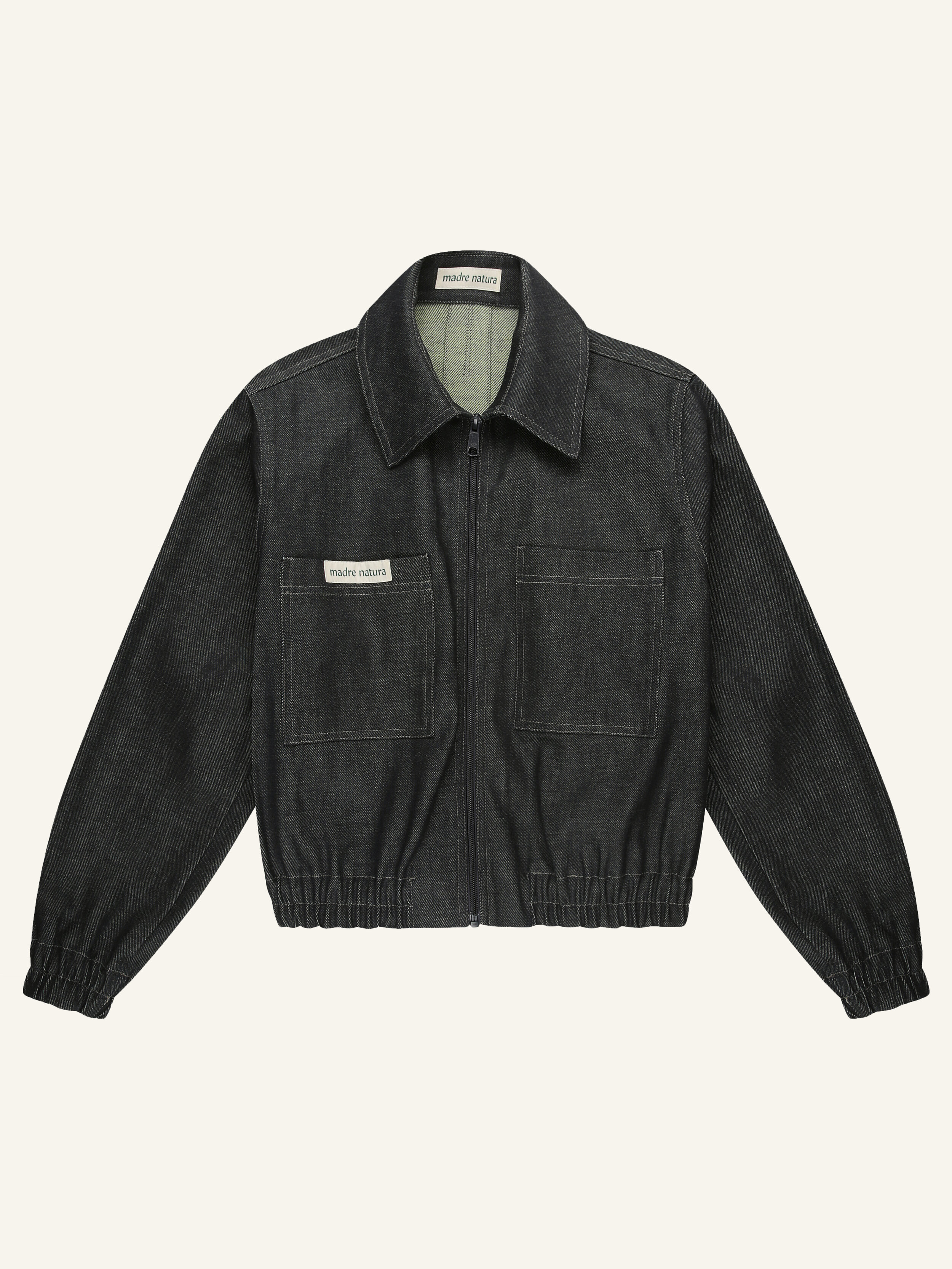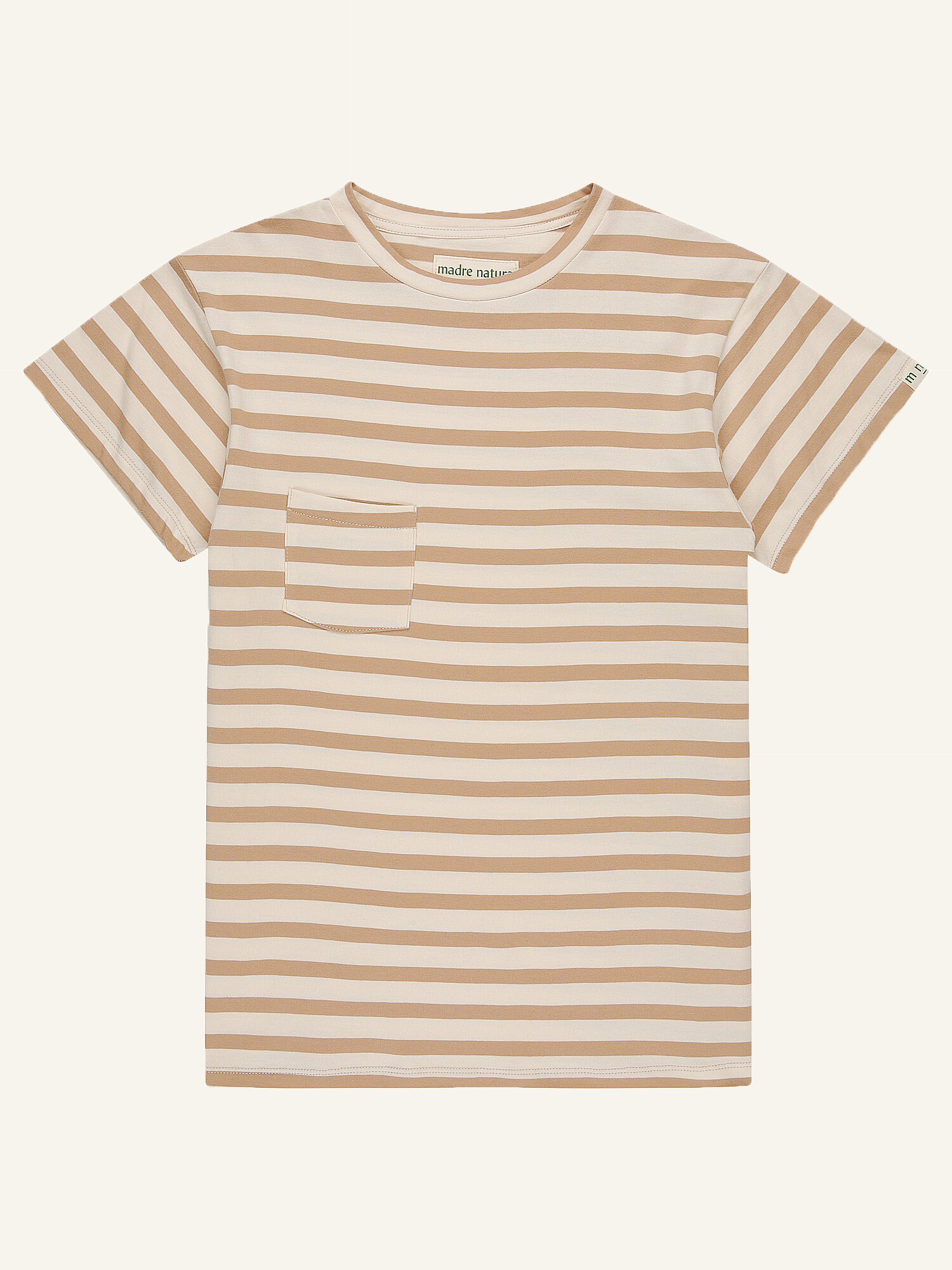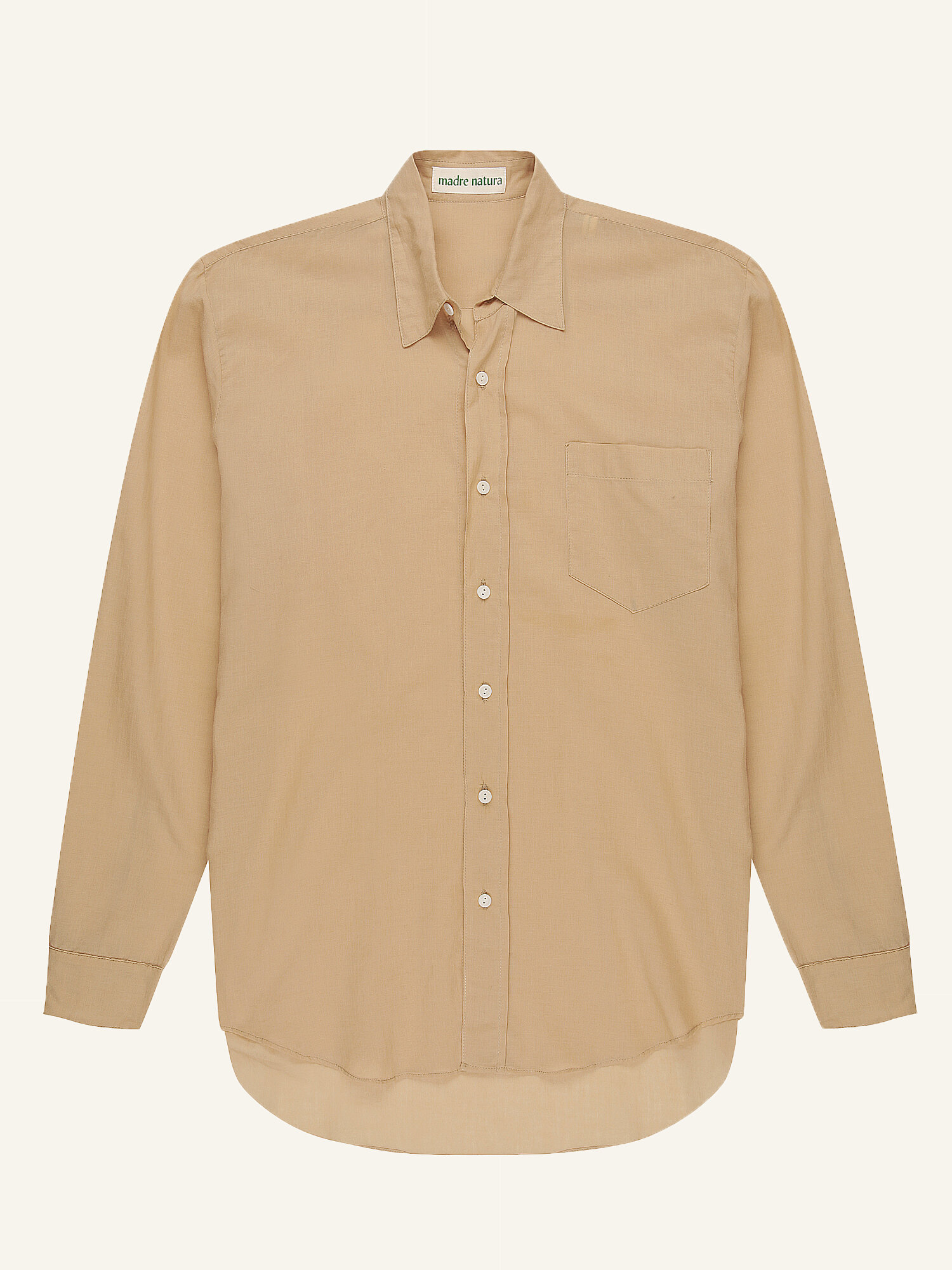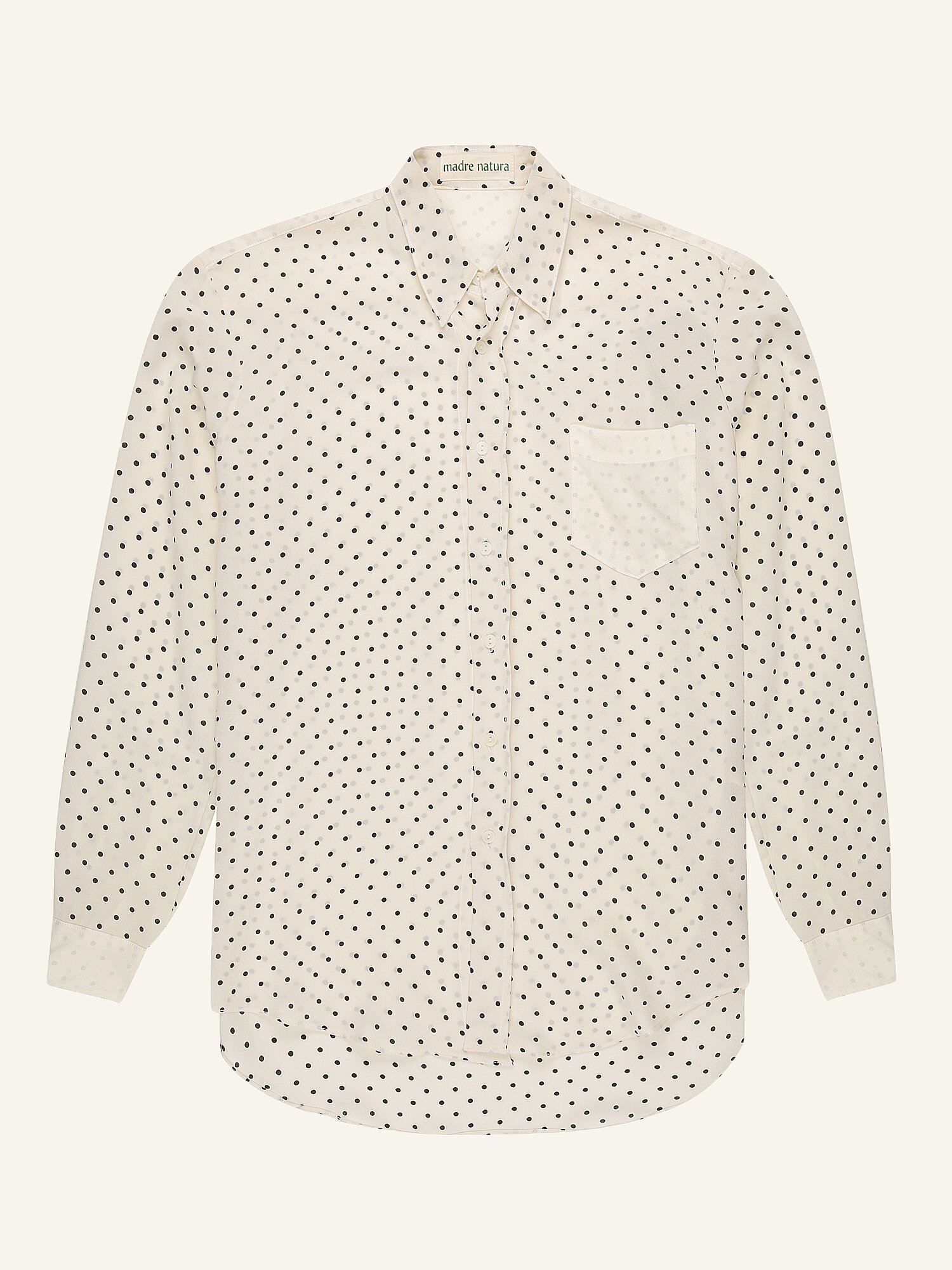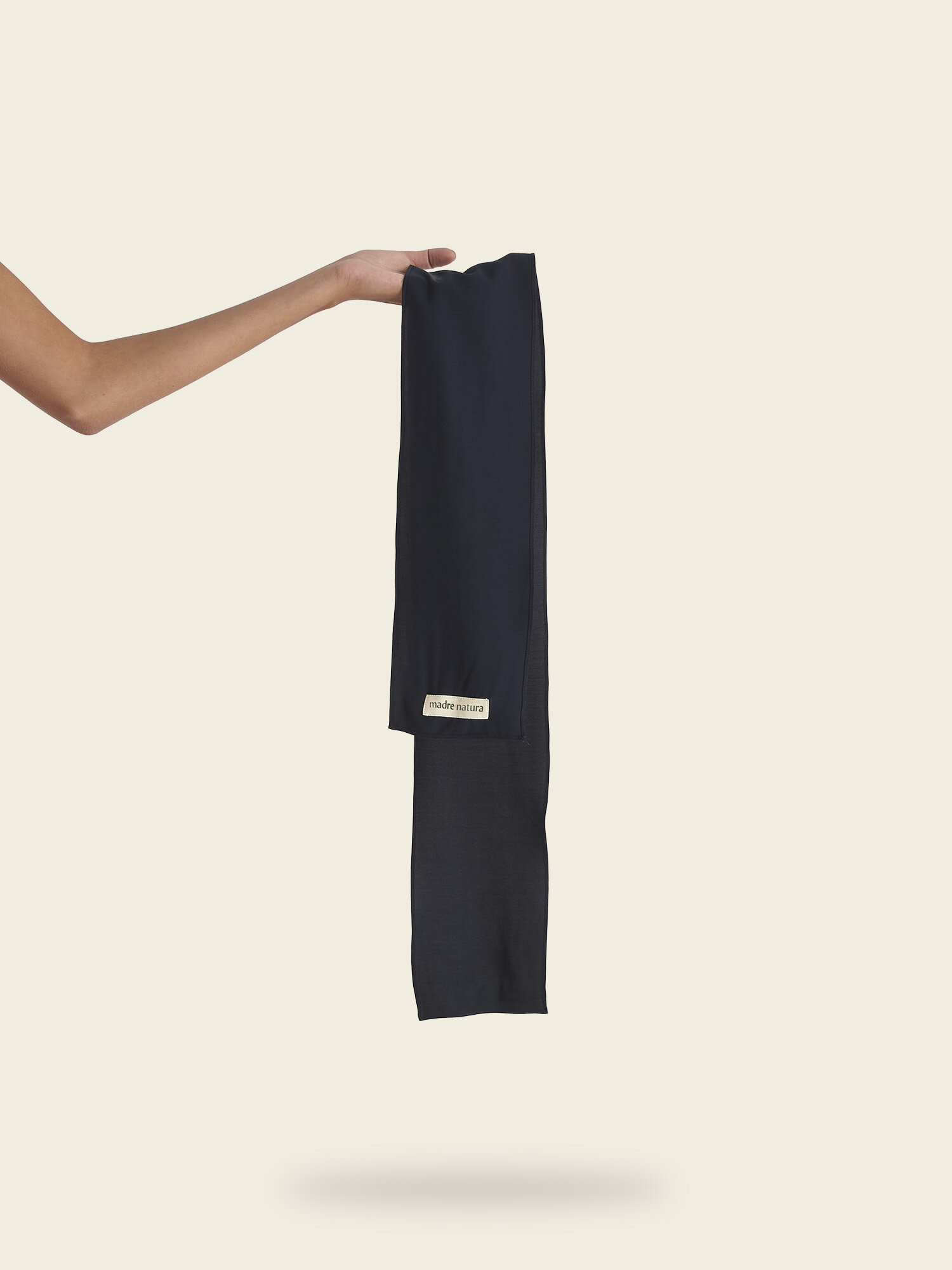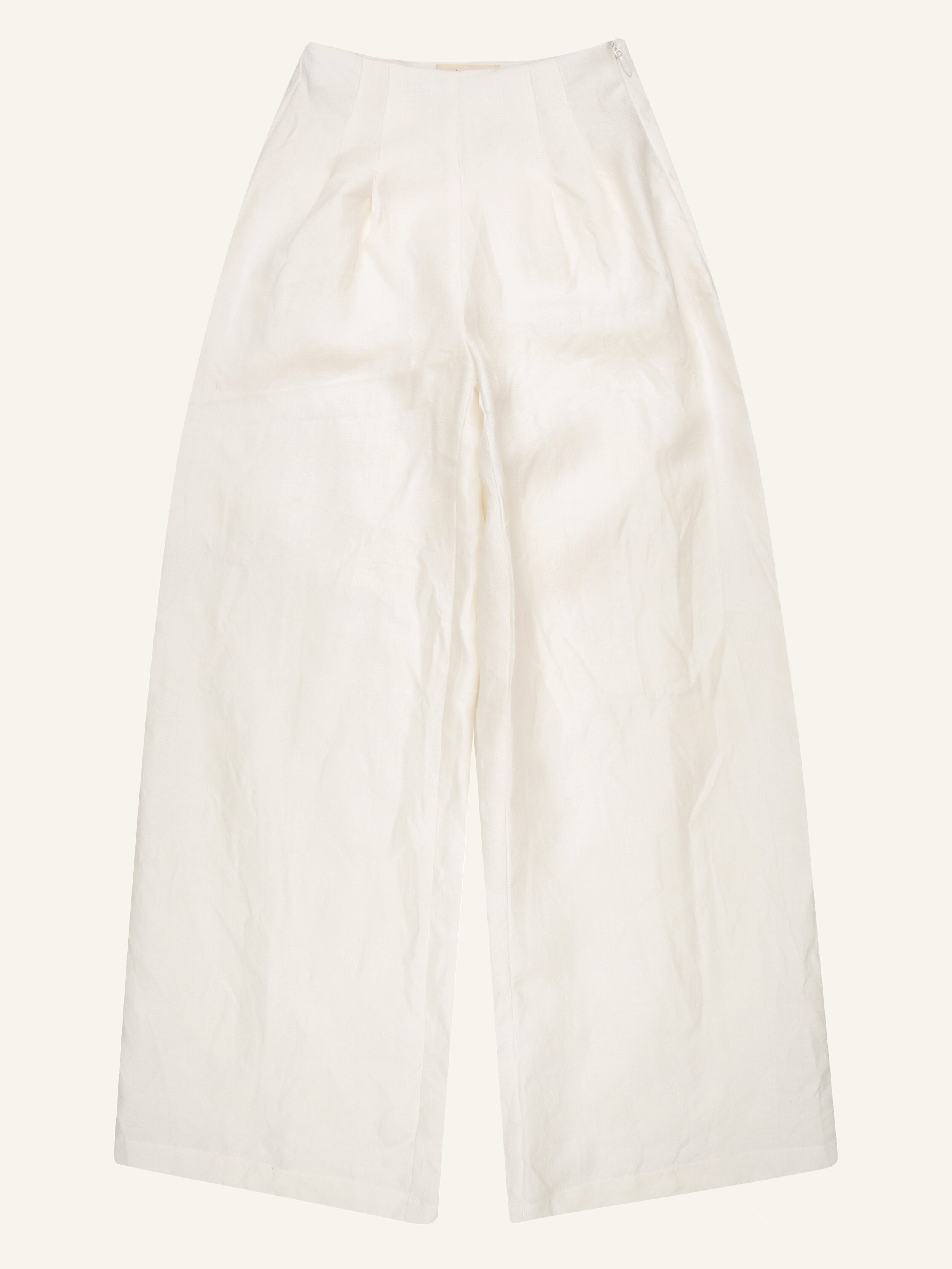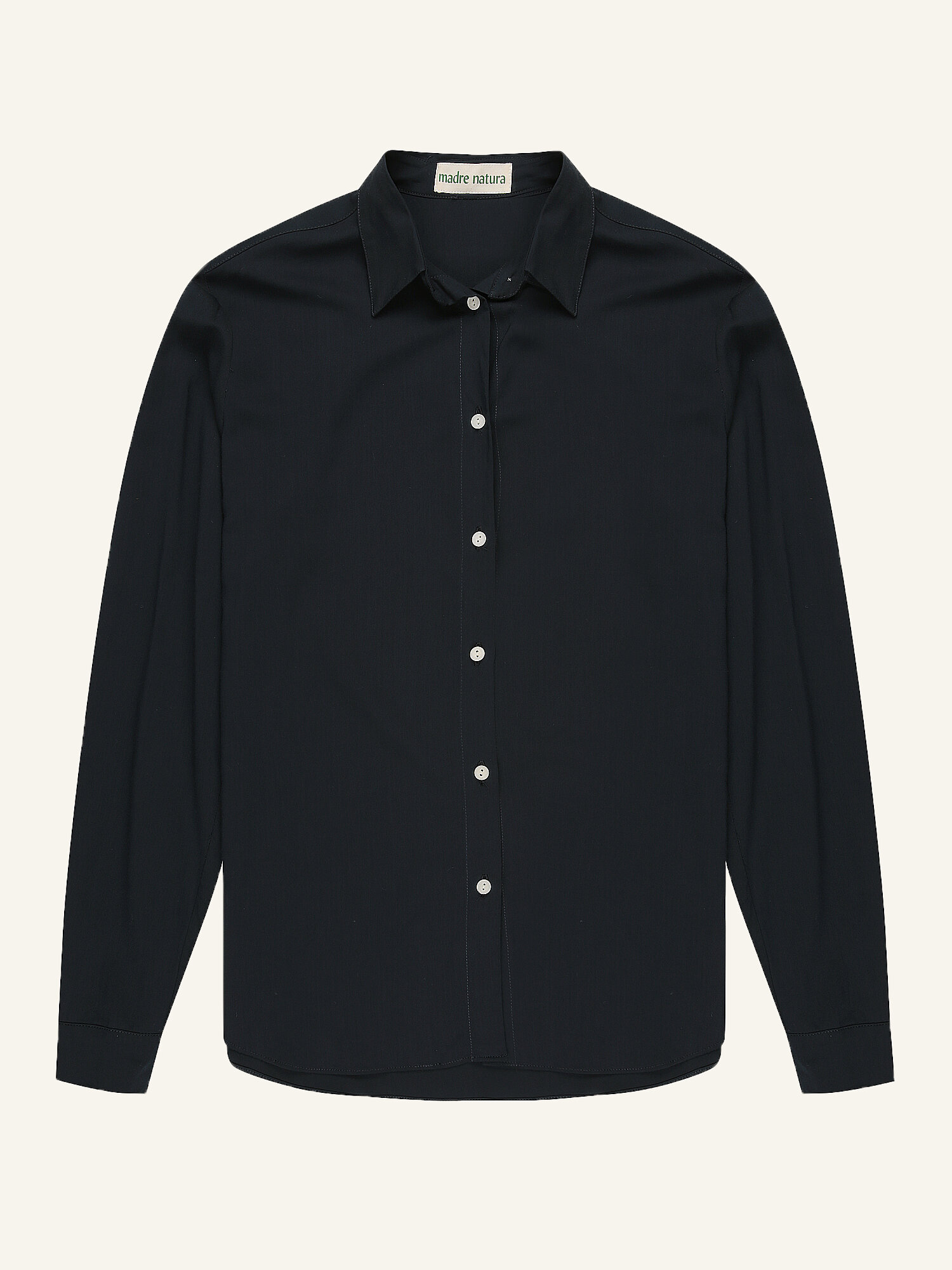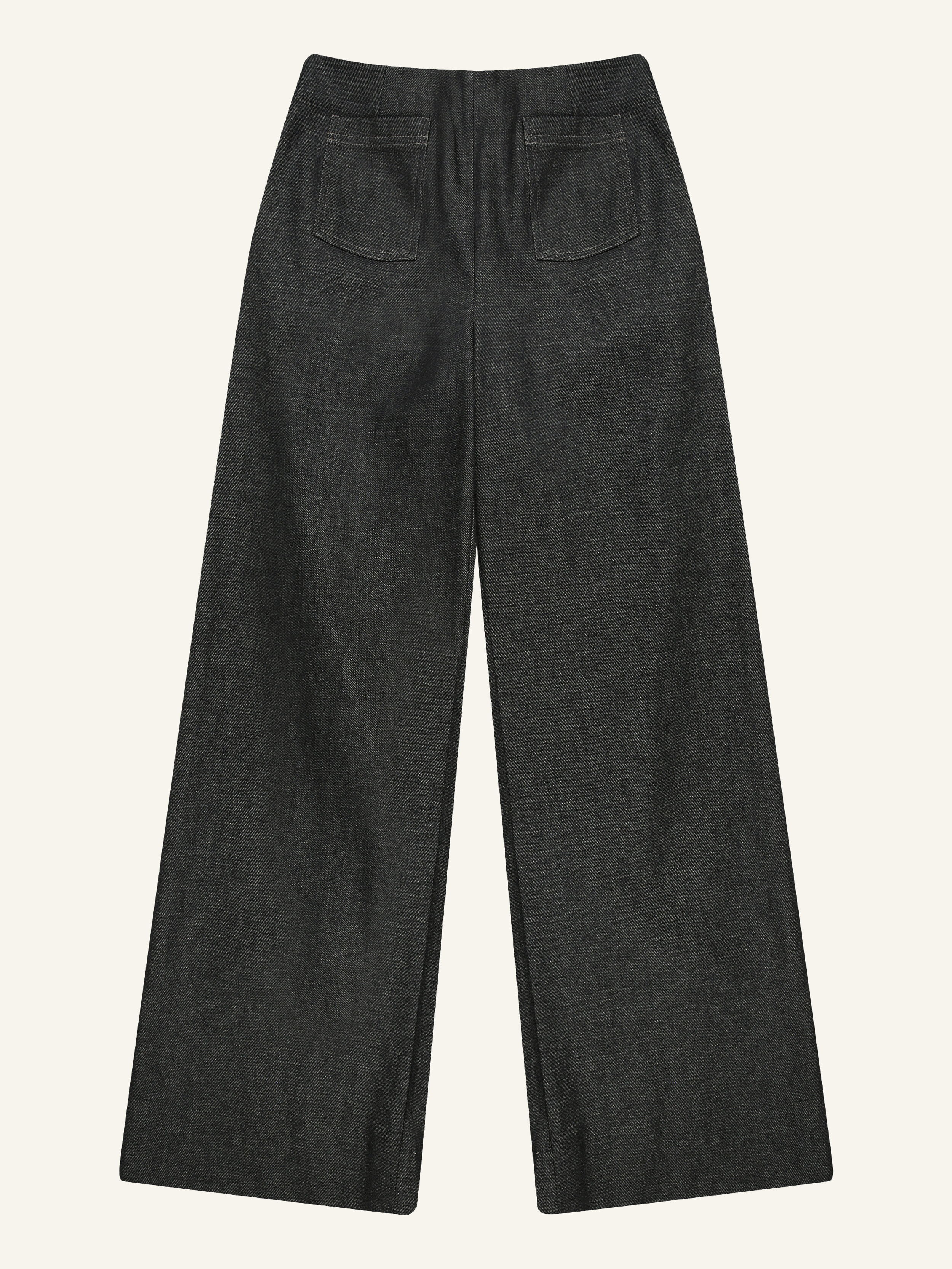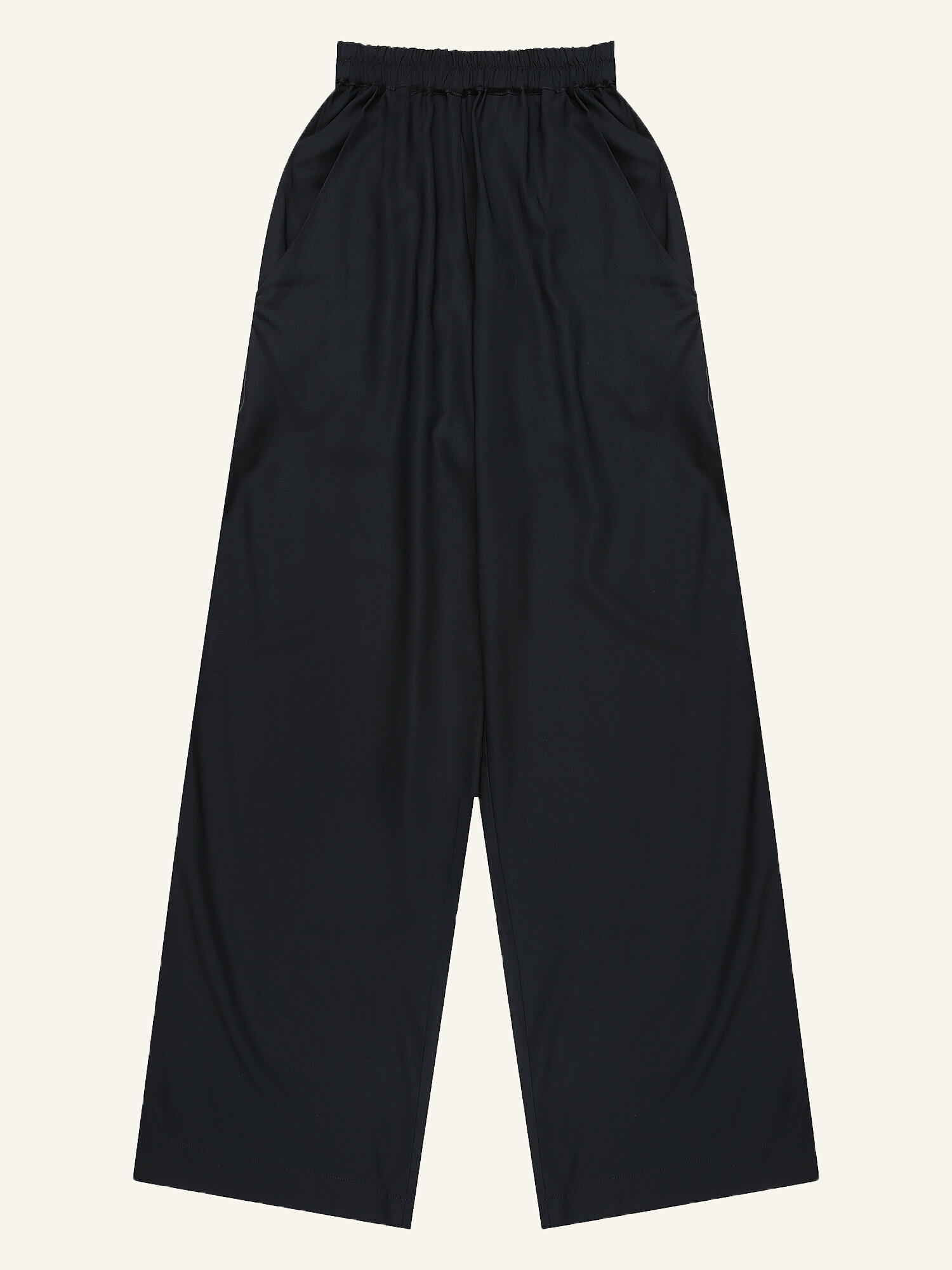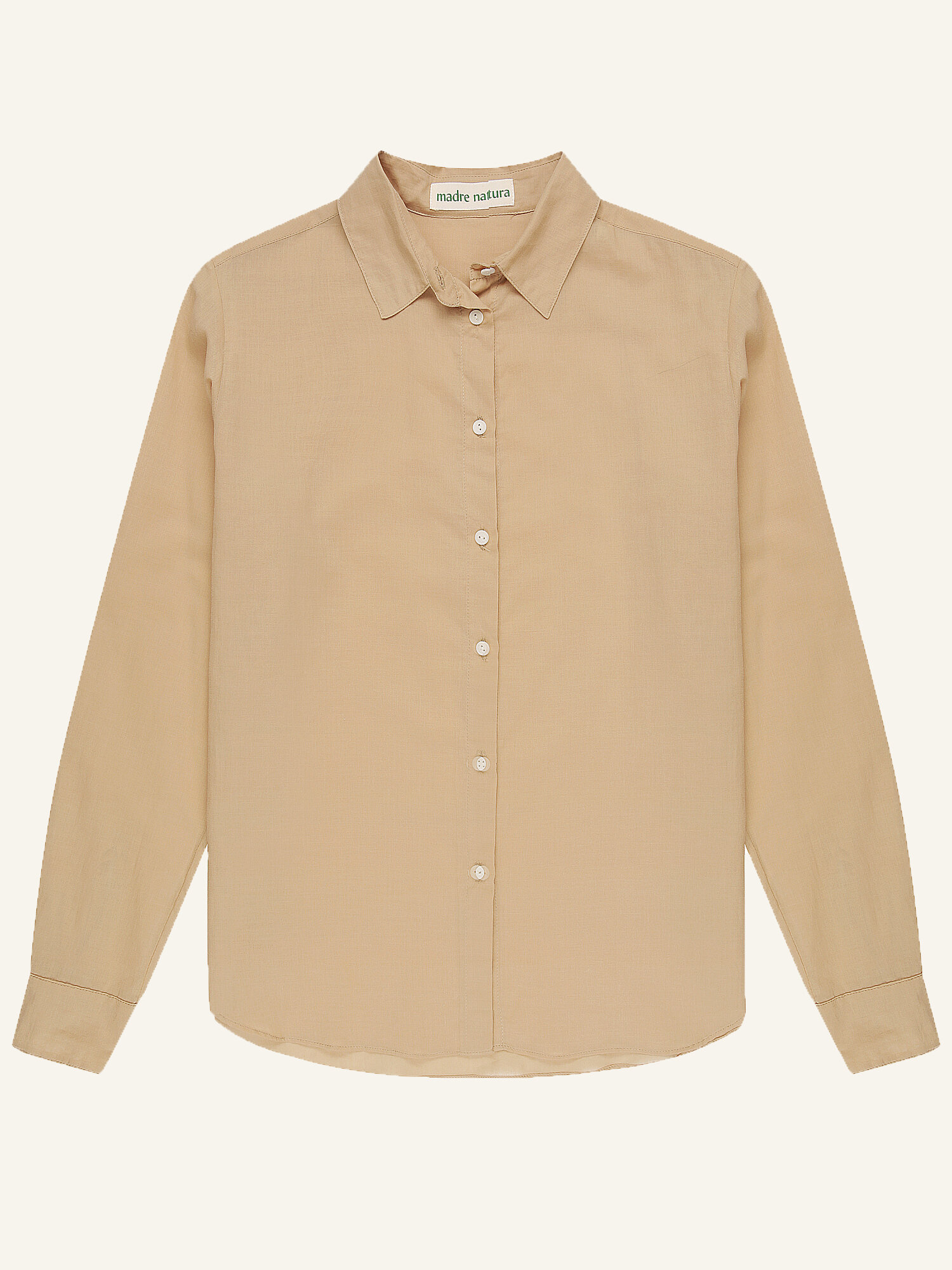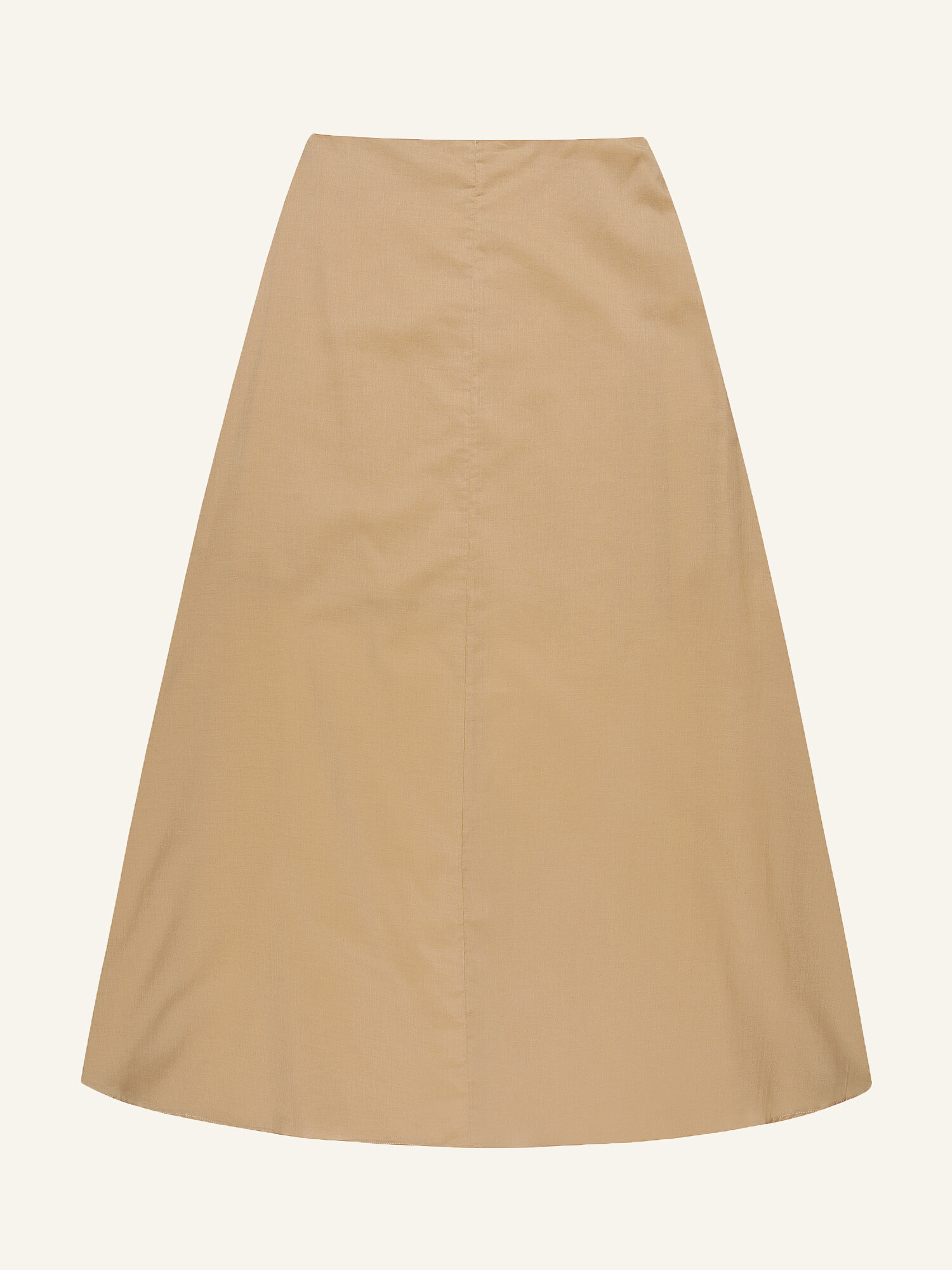Jessica Bragdon & Paul Davidson carefully formulated Koala Eco to only amplify their sustainable vision.
mn_Muse Jessica Bragdon & Paul Davidson at Koala Eco
Photography Joe Brennan
Koala Eco
Jessica: Please share a little bit about yourself?
So I’m originally from the United States, and I grew up in Boston and New Hampshire with an identical twin sister, Adrienne, and a younger brother. We had a pretty ideal childhood, very healthy and active: horse-riding and skiing and being outdoors constantly.
Our grandmother was a huge influence. She would take us on long hikes through the forests around her New England home, pointing out the flora and fauna along the way. She passed on her passion for natural things to our mother, who likewise was an avid plant and garden enthusiast (and is also an artist). Family outings invariably meant visits to historic gardens, plant nurseries and flower shows. Given this inspiring education in all things botanical, it’s hardly surprising that, after we finished university, my sister and I started a floral business in Boston.
Then years later, here I am with my husband Paul, running a business that is entirely based on plant species, and with a brand identity based around hand-painted botanical illustrations, done by an artist especially for us.
I’m still very close to my sister and brother; we speak at least once and usually twice a day. We both went to the same university in Boston, and then graduate school at Columbia University in New York. Then we worked for the same boutique hotel group at the Maritime Hotel. I was in NYC for about ten years, then left for Australia (having met Paul, my husband). Adrienne went to California. We were only supposed to be apart for one year, and actually, it’s been about 15!
Paul and I have two sons—Emerson and Arthur—who were both born in Perth. One of our boys had a life-threatening illness—Neuroblastoma—when a baby. Thankfully he came through the illness and treatment and is now totally fine, but it was a terrible time for us. Our family life is completely the most important thing to Paul and I. When you have been through an experience like that as a family, you really understand life needs to be lived as well and healthily and happily as possible.
Jessica: Yourself and your husband Paul launched in 2017, how long did it take from the idea to launch the business? and why did you decide to create such a business and why Australian essential oils the inspiration?
Once Paul and I had the initial idea for Koala Eco, it took about two years for us to become launch-ready. The company really is a pragmatic solution to personal frustration. We felt our two young sons (and our pets) shouldn’t have to hold their breath in order to avoid absorbing unnecessary chemicals every time we cleaned the family home, so we were constantly on the hunt for safe, affordable, toxin-free cleaning products that not only could make our home smell (naturally) fabulous but would also actually work. We also wanted to reduce any harmful impact on the planet that we might be causing by using non-sustainable materials.
We're both from entrepreneurial backgrounds, and so being Koala Eco’s first—and therefore possibly most demanding—customers, we had some pretty specific and sophisticated aims in mind. Primarily we wanted something that not only worked flawlessly but also could be misted safely around our children. Then, aside from the formulas being 100% safe and effective, we also wanted our products to look beautiful in case we needed them handy for easy access, or were just too busy to put them away.
We wanted to be totally transparent: to create products that were absolutely free of synthetic fragrance and colouring yet would still be affordable. Native plant species such as eucalyptus, lemon myrtle and peppermint have natural antiseptic and astringent qualities and have been harvested for tens of thousands of years by Australia’s Aboriginal people for food and medicinal needs. So we thought why ignore millennia of wisdom?
The “super-power” ingredients in our products are the 100% pure essential oils from the bark and leaves of native Australian trees and plants like Eucalyptus, Tea Tree, Lemon Scented Iron Bark, Lemon Myrtle, peppermint, lavender and rosemary. We also use essential oil extracted from the peel of citrus species like grapefruit and mandarin. These all have incredible natural antibacterial and antiseptic properties.
The essential oils derived from these plants can deodorise, clean, purify … the list goes on. And not only that, they smell gorgeous. No need whatsoever for synthetic fragrances. And while these are powerful cleaners and antiseptics, they are also totally safe around babies, pets and young children when used correctly.
Jessica: Koala Eco is an amazing all-encompassing approach to creating sustainable and ethical and environmental cleaning products, first of all, can you walk us through how you source your essential oils and your new post-consumer recycled plastic materials?
Paul and I work with chemists and labs based right here in Sydney, and our products are made and bottled in Australia. Unless we are totally happy with the product right through its development, then it won’t go into production. Koala Eco products have to be biodegradable, and eco-friendly, and they also have to be able to clean effortlessly, removing bacteria, disinfecting and deodorising.
It’s incredibly important that we stay true to our ethos. The Eco on the name (and dot-eco domain for our website) represents the goals and values of a passionately committed environmental community on an international and multicultural scale. We were one of the first businesses to be invited to re-badge as a dot-eco company by the Vancouver-based dot-eco movement, launched by two former United Nations Environment Programme staffers. We're really proud to be part of that.
We source our essential oils from Down Under Enterprises. Headquartered in Sydney like us, this is a company that grows, produces and supplies wholesale Australian essential oils to other companies all over the globe. For nearly 20 years, they’ve been growing traceable and sustainable Australian essential oils and botanicals on their own farm, Buhlambar, and partnering with a pool of small independent growers across Australia. All Down Under’s partner farms are organic, harvest rainwater and use 100% renewable energy.
We’re small enough as a company to make sure that we are scrupulous with our research and testing (no animals are involved) and that our formulas are made to the highest standard in terms of natural ingredients and cleaning power. Each Koala Eco product sold triggers a donation to environmental charity One Per Cent for the Planet. We use all recycled packaging and shipping materials, and everything is recyclable.
We were overjoyed when we managed to move to Recycled PET bottles for our packaging, so Koala Eco is no longer responsible for causing new plastic to be made. This fantastic breakthrough came after a year’s lobbying our plastics company, to trial the manufacture on its existing equipment once we’d reached a certain level of sales and production volume. The Recycled PET process recycles original PET containers into ‘new’ bottles and is more environmentally friendly because recycled PET has a lower carbon footprint than virgin PET. All of the recycled plastic comes from Australia so it’s not imported. Incidentally, making recycled PET standard packaging would be so easy for all the big companies stocking products at grocery stores and supermarkets, because they already have the volume and capacity to qualify, and wouldn’t have to lobby for it as we did. And yet, very few of these companies are adopting recycled PET. It just doesn't make sense.
Jessica: In times of the environmental climate crisis, being sustainable can be an incredible tool to amplify the importance of your businesses environmental impact. How has the recent year affected your business and the message you want to convey to support your business values?
Obviously, lives and lifestyles have been changed worldwide over the past year, owing to Covid-19. So not only are we grappling with climate change, we have another massive threat to our wellbeing and futures. I’m sure just about everyone is thinking that home and health have never been more important; those of us lucky enough to feel safe in our own homes, that is. I think the virus has made us realise good hygiene means so much more than cleanliness; it’s a way of helping to prevent the spread of germs and, when we clean and care for our homes with products made totally from natural ingredients, it's a form of self-care that impacts not only on physical but also mental health. Health awareness has probably never been more prevalent thanks to these extraordinary circumstances the whole world has been experiencing. And we don’t know how long this situation will last.
People are shifting perspectives and priorities: how to look after each other, how to stay well mentally and physically, how to keep their immediate environment safe and healthy. We’re all questioning what the future will look like for family life, work-life, self-fulfilment. And paramount in those questions is how we live in a current and post-COVID world. During lockdowns, we've already been made aware of the importance of nature and green spaces to our mental and physical wellbeing. If the natural world comes under any more threat, humankind will be lost.
A heightened consciousness in consumer choices is an inevitable consequence of living more mindfully, so yes, brands have to measure up to the standards expected of them in a more environmentally aware market. And consumers will become way more discriminating about environmentally friendly purchase choices. As far as Paul and I are concerned, we’d like to see Koala Eco and our products help people make better choices not only for their own health but also for the health of our planet.
Jessica: We ask every mn_Muse - tell us about your relationship with nature and how to do you implement it in your daily life? What is your routine for self-love practices?
Living in Australia, it’s hard not to be inspired by nature. Every bushwalk or trip to the ocean you are surrounded by the most incredible flora and fauna. We also live right on the edge of Trumper Park, one of Sydney’s most beautiful green and leafy spaces. Sometimes I go for an early run, yoga class or beach workout. I have some essential oil diffusing through the house, whatever my current favourite happens to be (usually something we are researching for our latest product).
Also, Tata Harper Revitalizing Body Oil is very hydrating. I use Los Poblanos Pinon Bar: it smells like the mountains of New Mexico.
I am an avid reader: lots of books on my bedside table; the New York Times every day. I like the New Yorker and The Economist too. I make time to have a really good coffee. During a working day, it can be a challenge to grab a few minutes to sit and centre myself with a bit of meditation, but this is something I endeavour to do. Once a month I make sure to have a day to myself to regroup, recharge and rest. Usually, it involves the ocean. Paul and I try to go out together alone for dinner or a drink together when we can but this can be challenging.
Jessica: How would you describe your style? And how has it changed over the years?
My personal style has always tended towards minimalism. I’ve always loved a design aesthetic like Yves Saint-Laurent’s: women in men’s tuxedos, the original unisex, gender-free (and irresistibly stylish) approach to dressing. I’ve always liked clean, classic lines, and as I’ve gotten older I’ve been drawn to more avant-garde shapes and cuts. I would rather buy a few very well made pieces that last. I should add, that as a New Yorker I own way too much black…but no apologies for that!
Jessica: How do you see the Australian Fashion industry becoming more sustainable in the future?
I think it’s an area of real potential, and the sky’s the limit. During the past few years, we’ve seen the growth in popularity of ethical companies: clothing manufacturers exploring recycled or natural (and sustainable) fibres, household and body-care products shunning parabens and toxic chemicals. The fashion industry is finally leading the way, proving that stylishness, fit and comfort are ideal partners for ethics and sustainability.
People are increasingly drawn to doing the right thing, I think, and sourcing garment companies that do not exploit people or the planet is part of that whole mindset. I believe that increasingly, it’s not just about ‘the look’, but also about the story around the look. Fashion has always been so visually inspiring, and now ethical fashion can inspire us to live better and more mindful lives. We are drawn to the stories. I love how so many stylish older women worldwide are championing ethical clothing and design companies, and writing blogs like That’s Not My Age by UK journalist Alyson Walsh; and how many younger women are leading the way with thoughtful content and wonderful images. In Australia, I’m thinking about people like Jenna Flood, Molly Farai Harris, Nina Gbor….
Jessica: What is your favourite madre natura garment and why?
Going back to my attraction to Yves Saint-Laurent’s style aesthetic, I love how madre natura is unisex… I live in oversized blazers. Most importantly I love fashion that is eco-friendly and fair trade: clothing that feels beautiful from an ethics perspective as well as an aesthetic one. I’m drawn to timeless classic sophisticated cuts and the fabrics that feel good: the opposite of mass-produced and trendy.
I am loving the madre natura denim pants and jackets, and the eucalyptus and gum nut colours. The blouses are wonderfully comfortable and flattering to any shape.
Jessica: Do you have a favourite season to dress for?
Not really. My philosophy is that any season is an excuse to delight in beautiful clothes.
Jessica: Lastly, where do you see the future for Koala Eco?
In a word, expansion. More choices for the growing numbers of people who don’t want to harm themselves or the planet with toxic cleaning and personal care products. Koala Eco is now Australia-wide, as well as stocked globally in Hong Kong, Korea, Japan, Bahrain, Thailand, Singapore and Taiwan. So our next major plan is for launch in the States.
We’re overjoyed that my family will be involved in running the Stateside operations. They have in fact has been involved in many consultative ways since Koala Eco’s inception, so it was natural and inevitable that we’d start talking about launching Koala Eco in the States. It will be run on the same principles as the Australian operation, mail order and in stores, and putting ethical production and packaging at the top of the agenda. Happily, many of the plants we use are also native to the States, so if we want, we’re able to source ingredients and manufacture on both sides of the world. The development of new products will remain under Paul’s and my control in Sydney. We’re excited about the future.
Shop Paul’s edit
Shop Jessica’s edit

